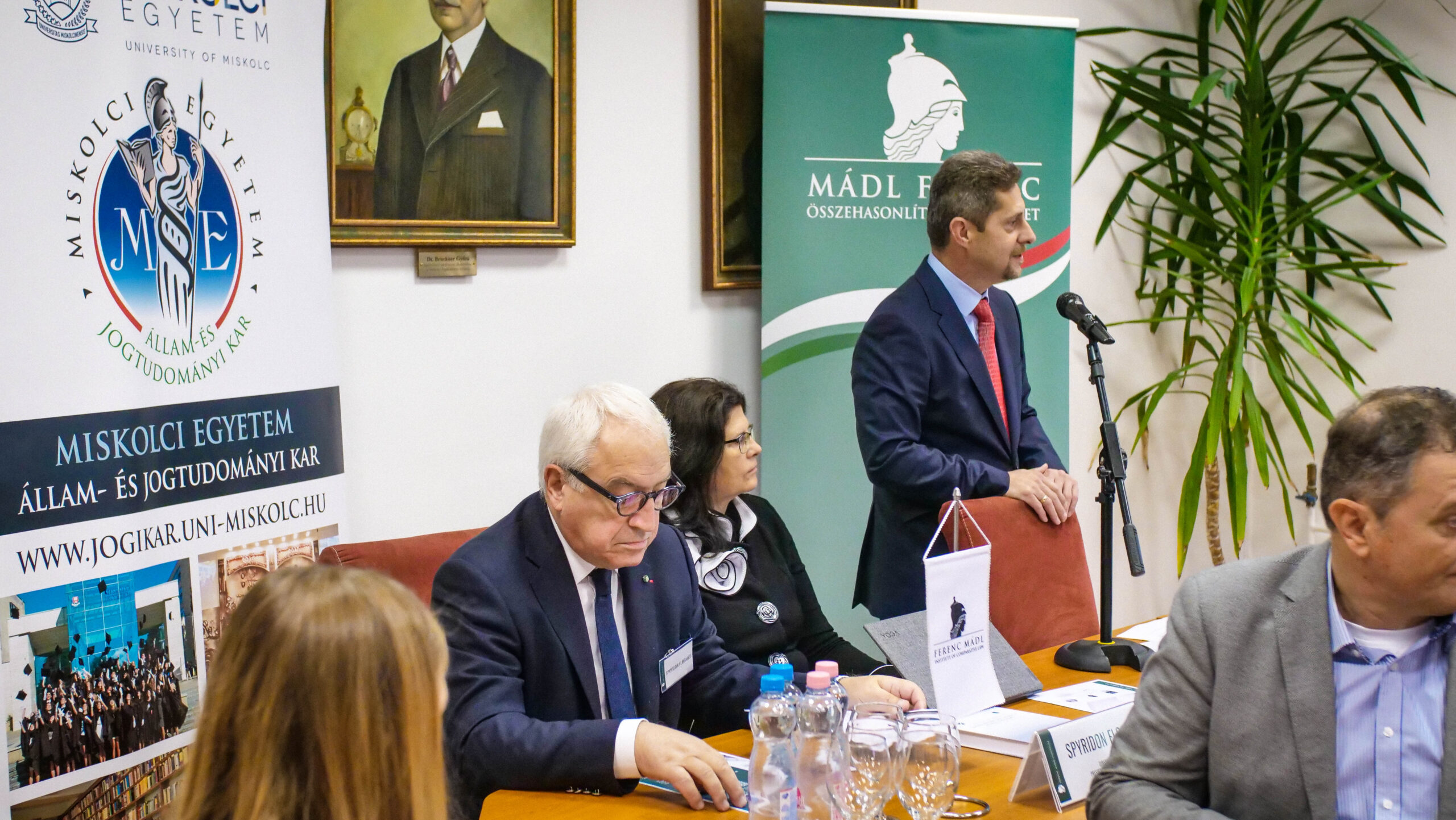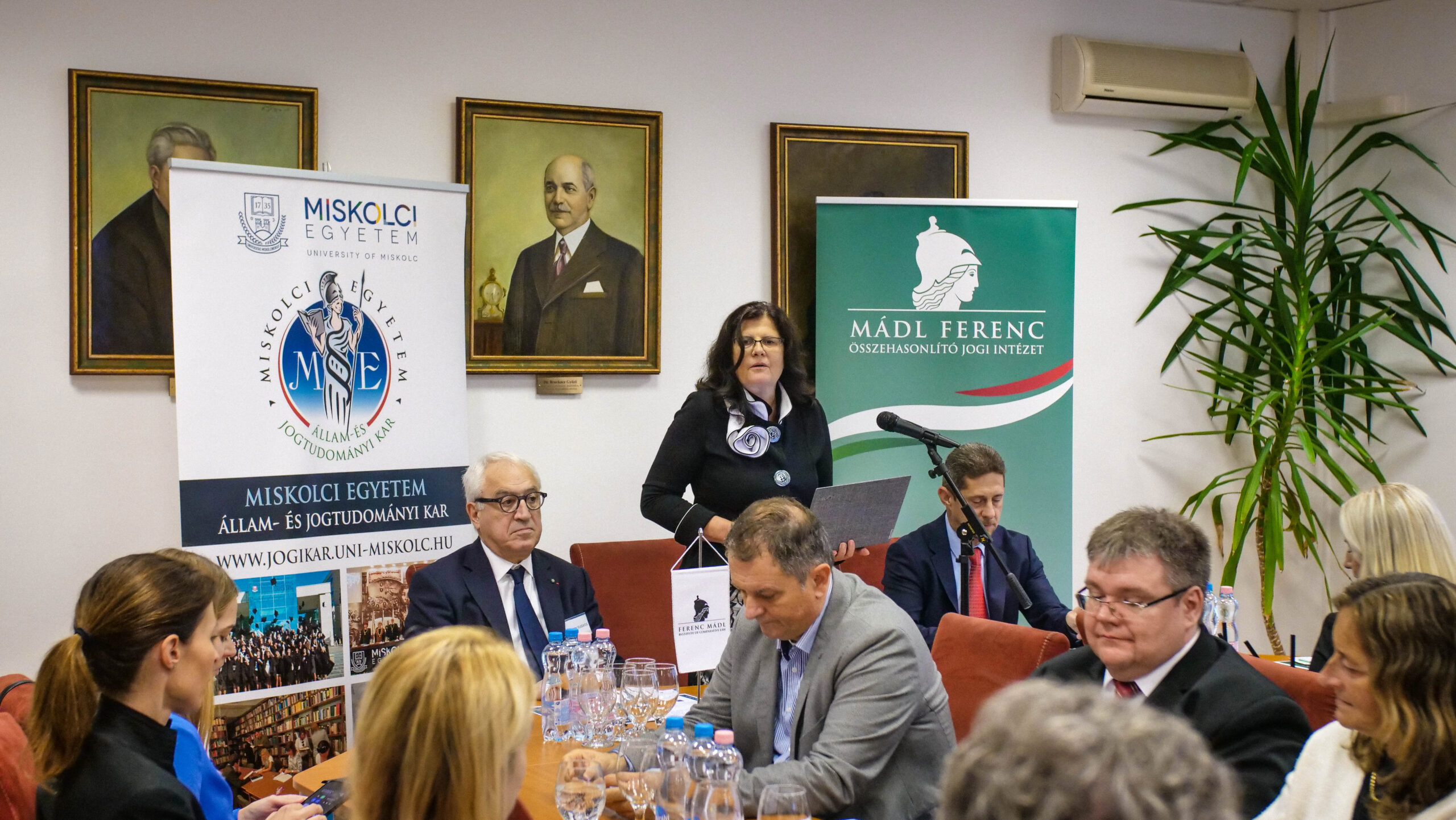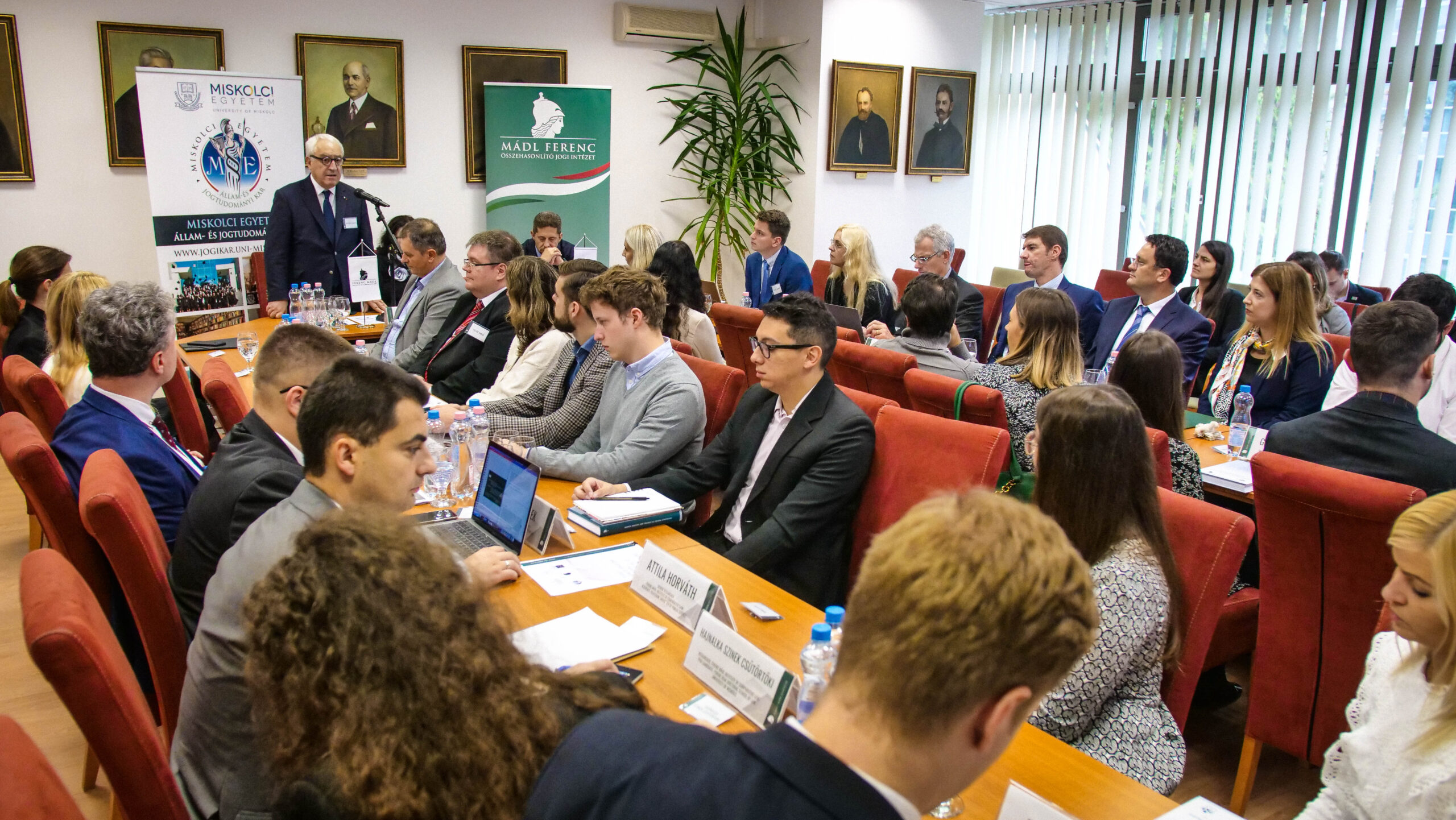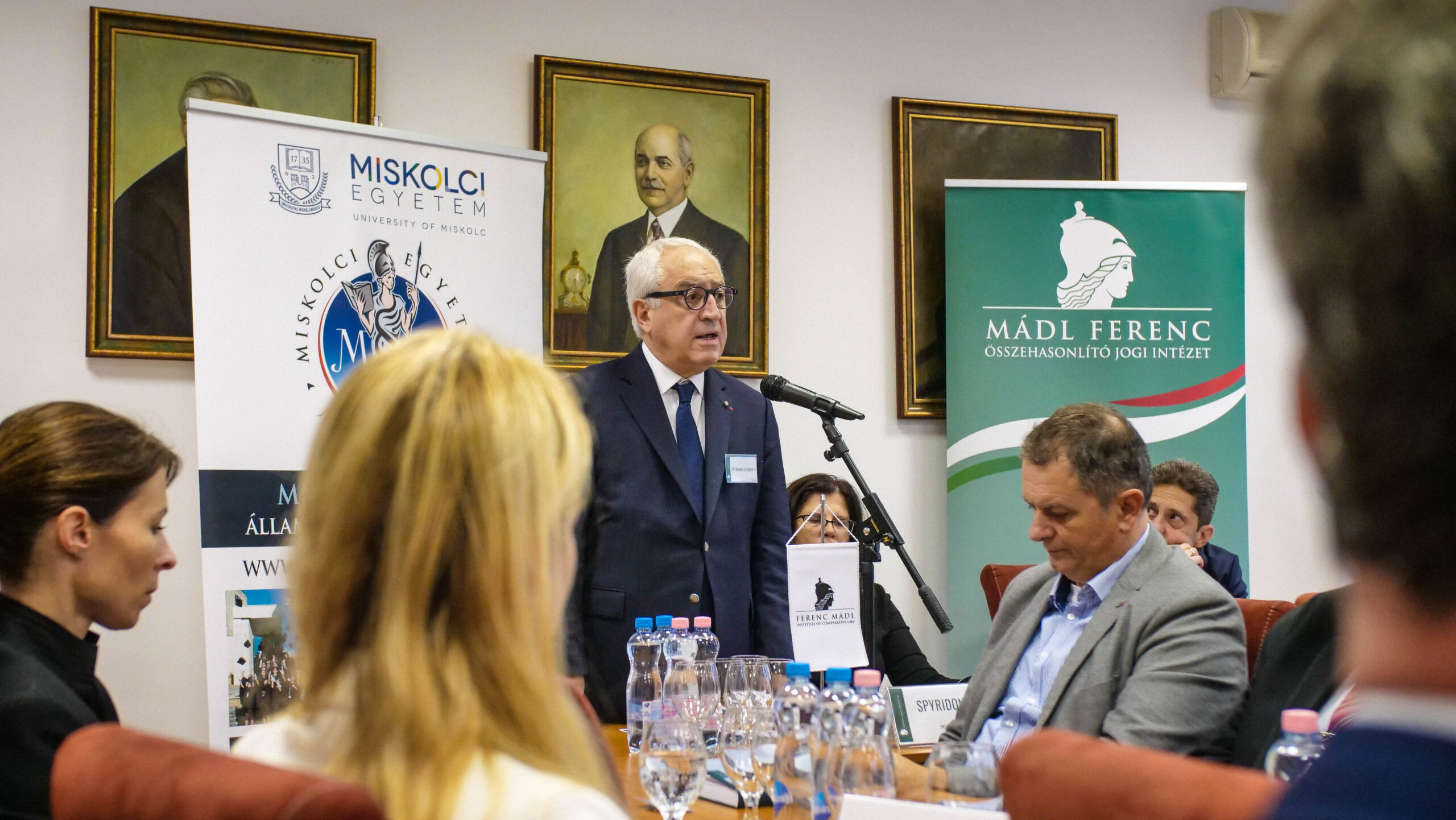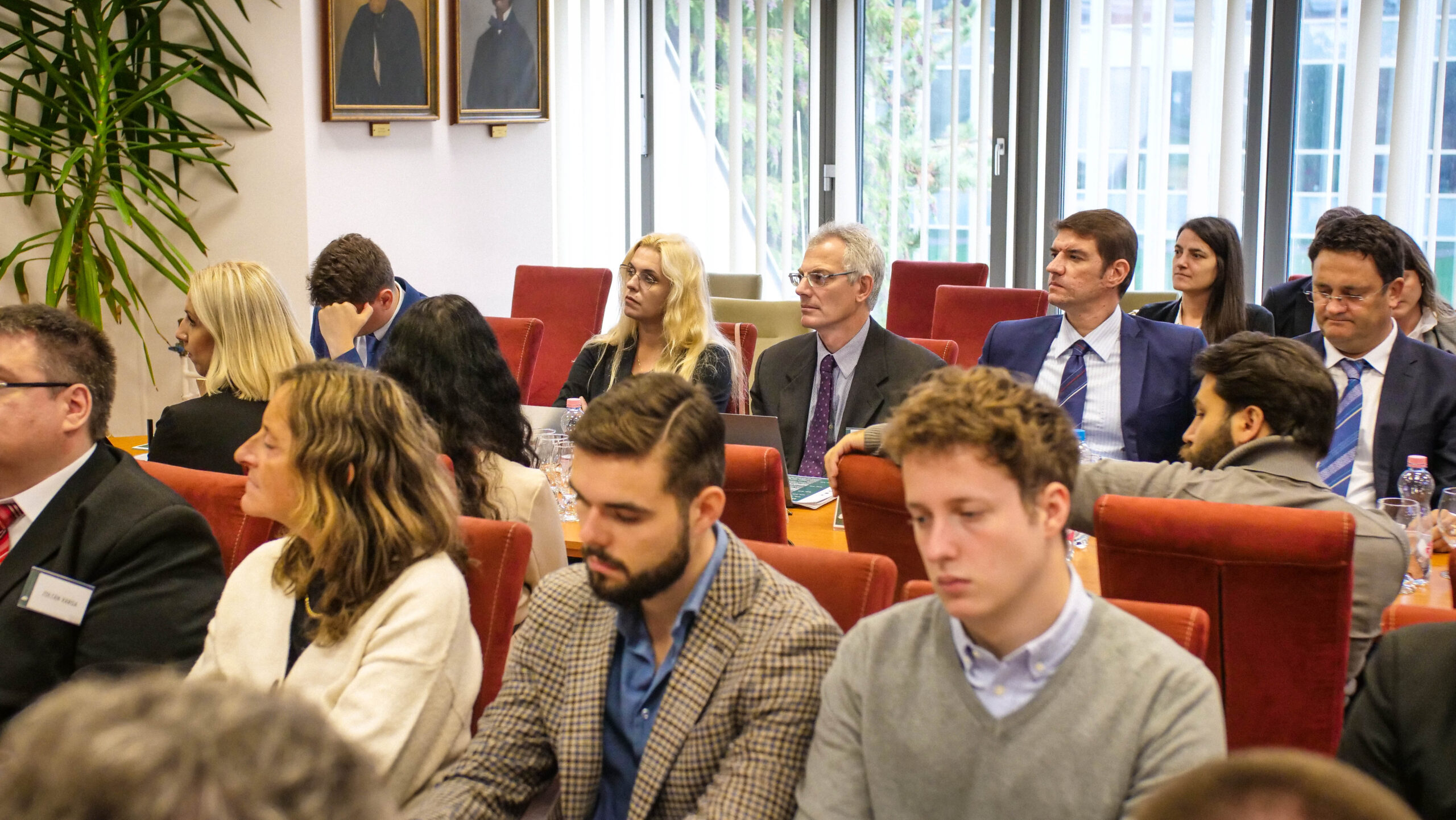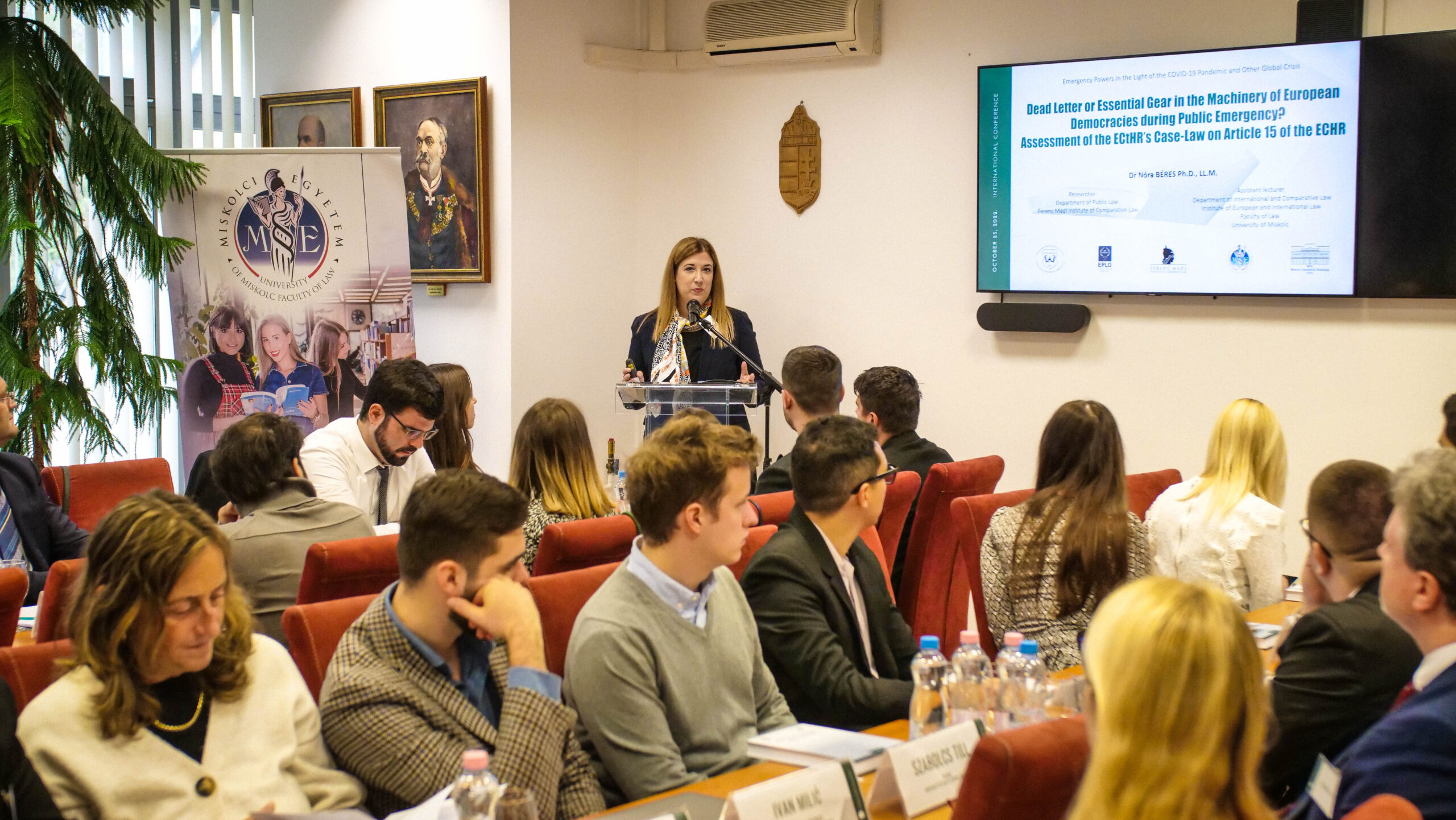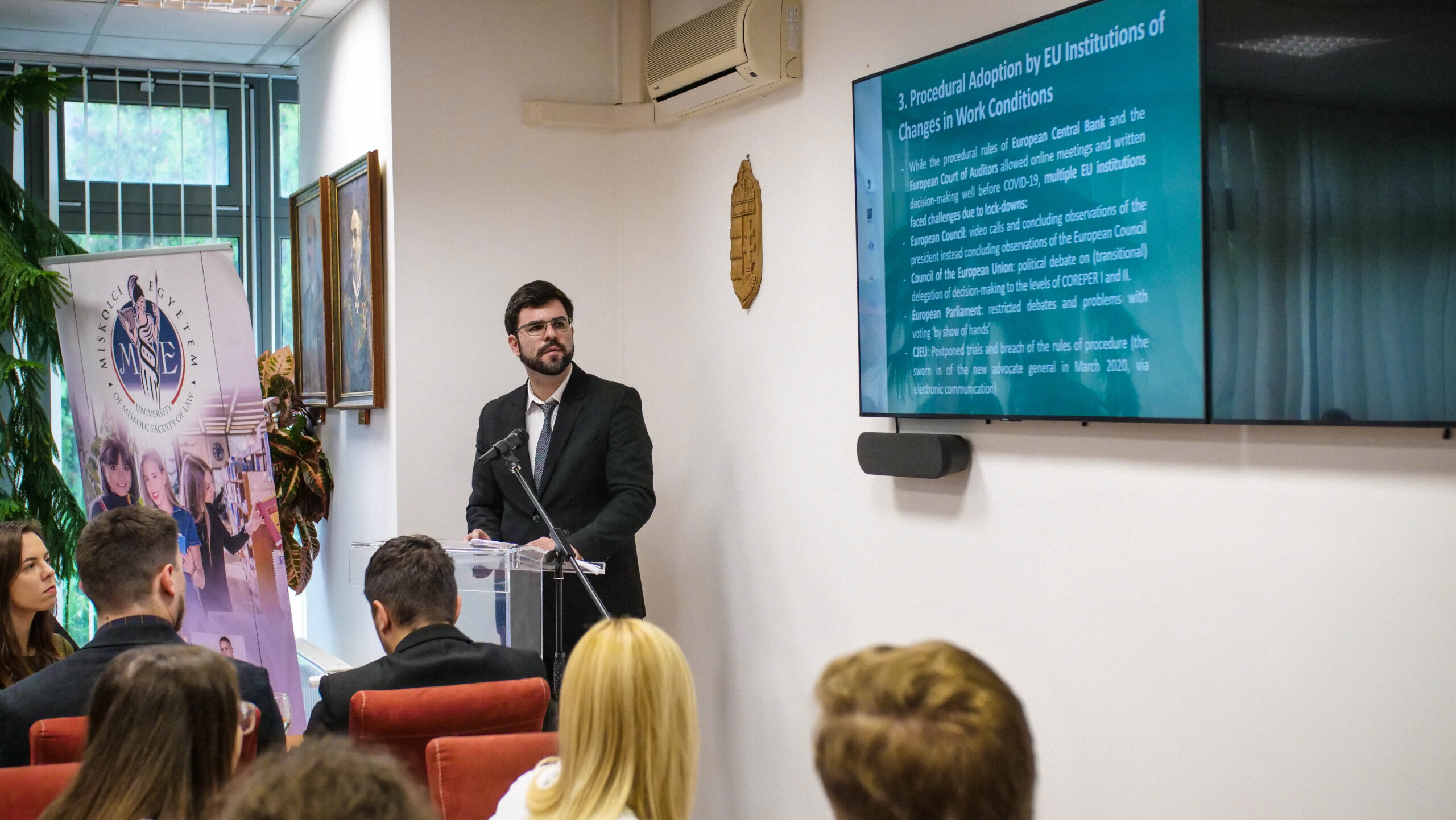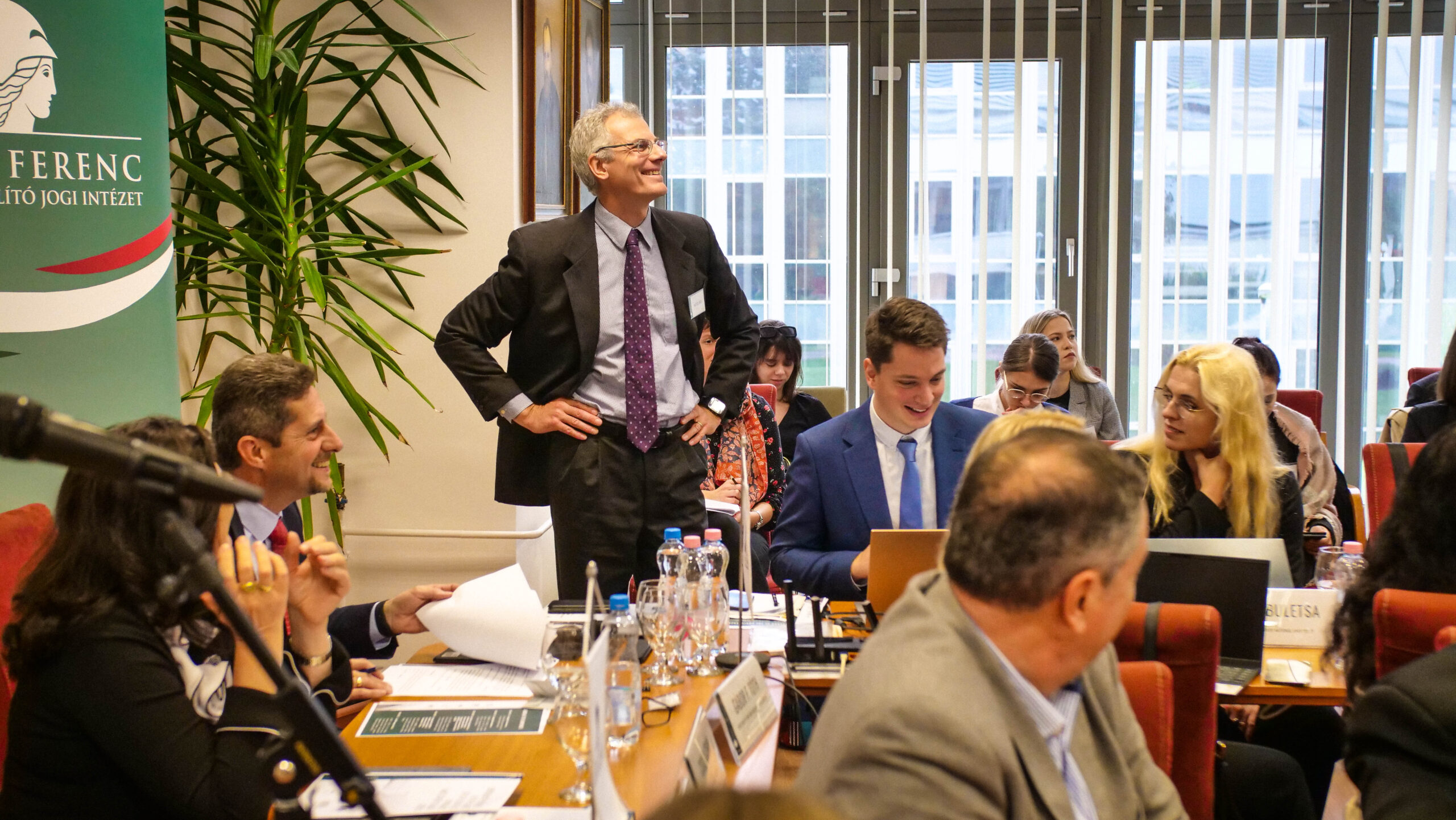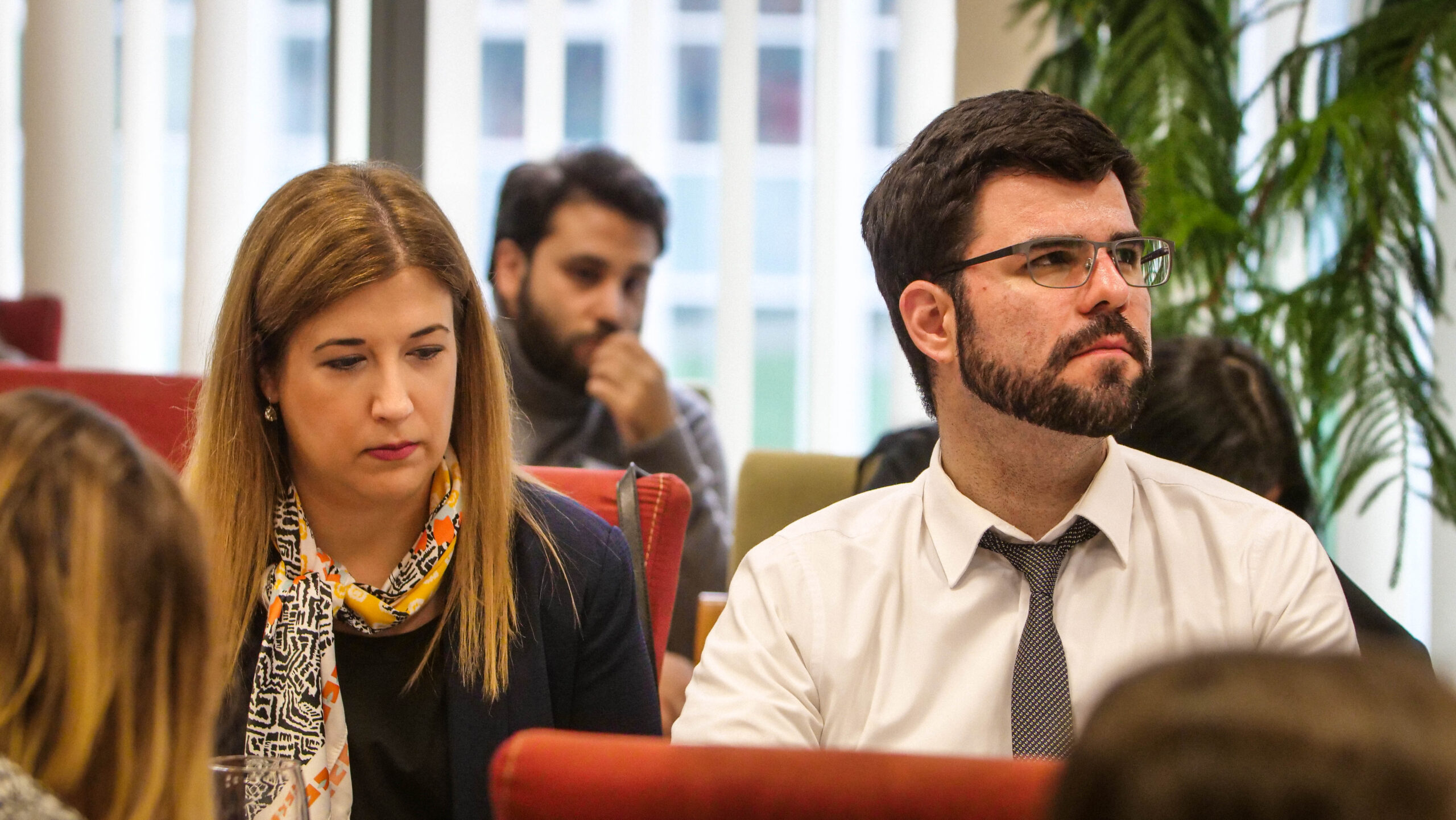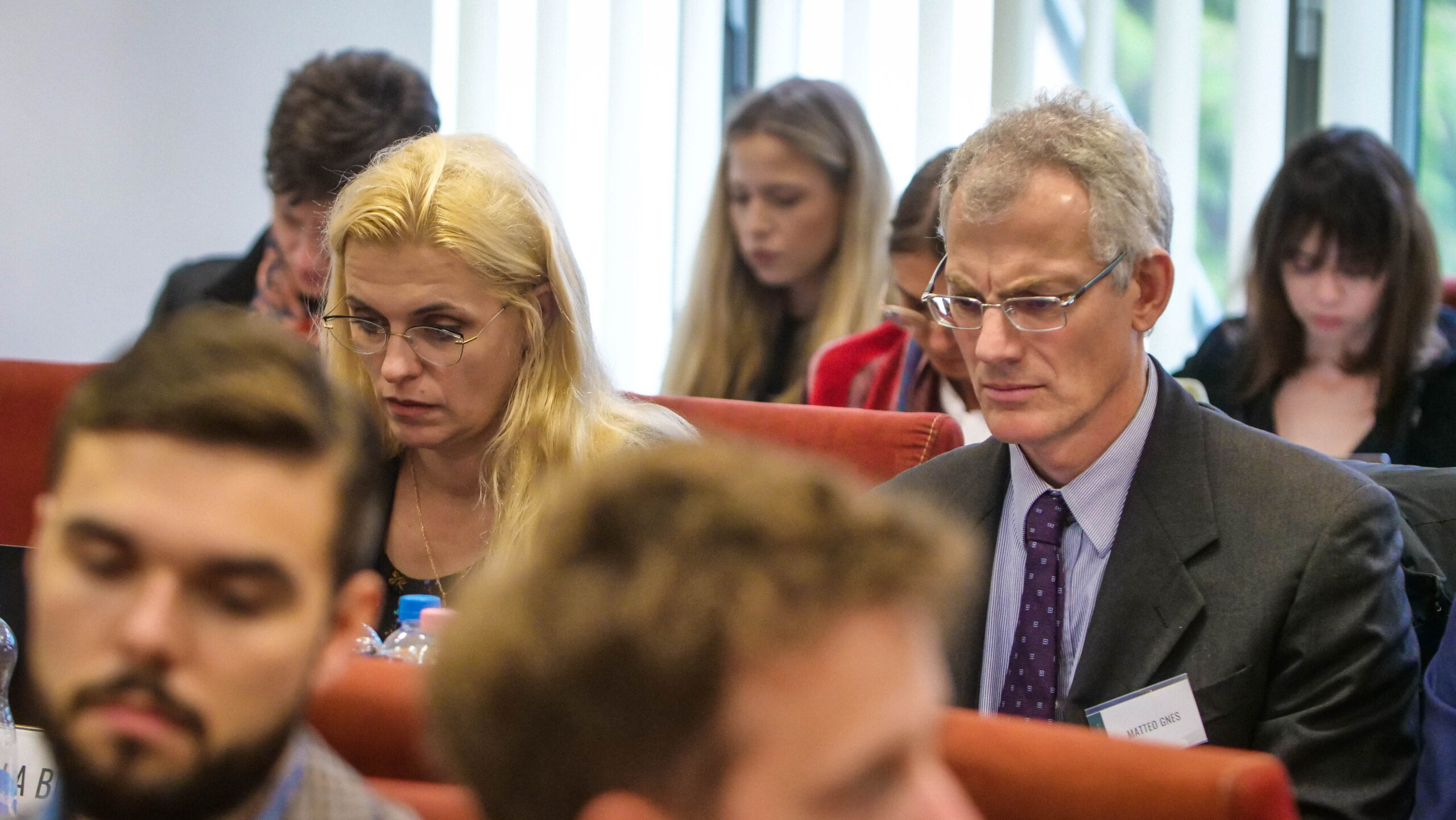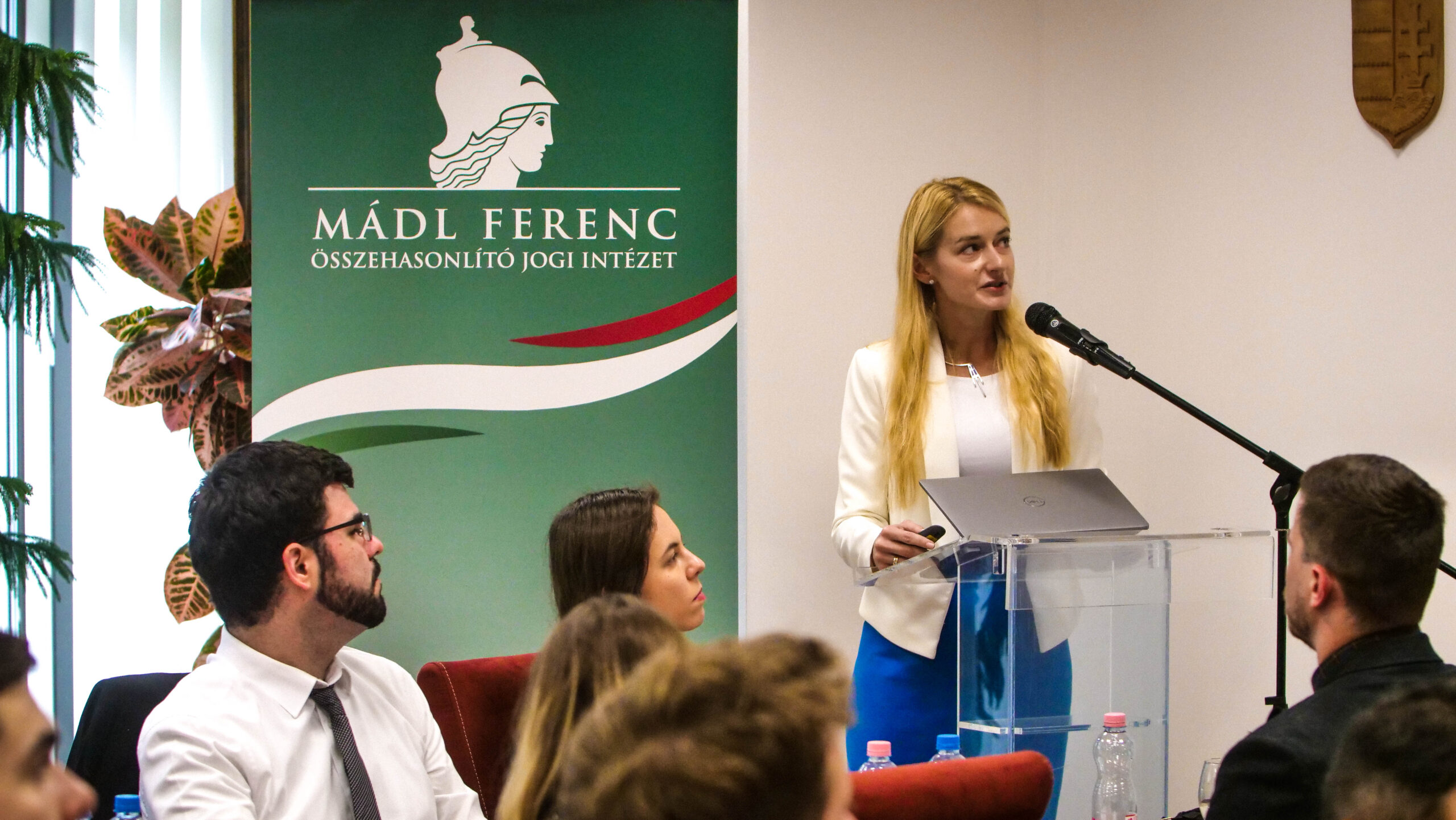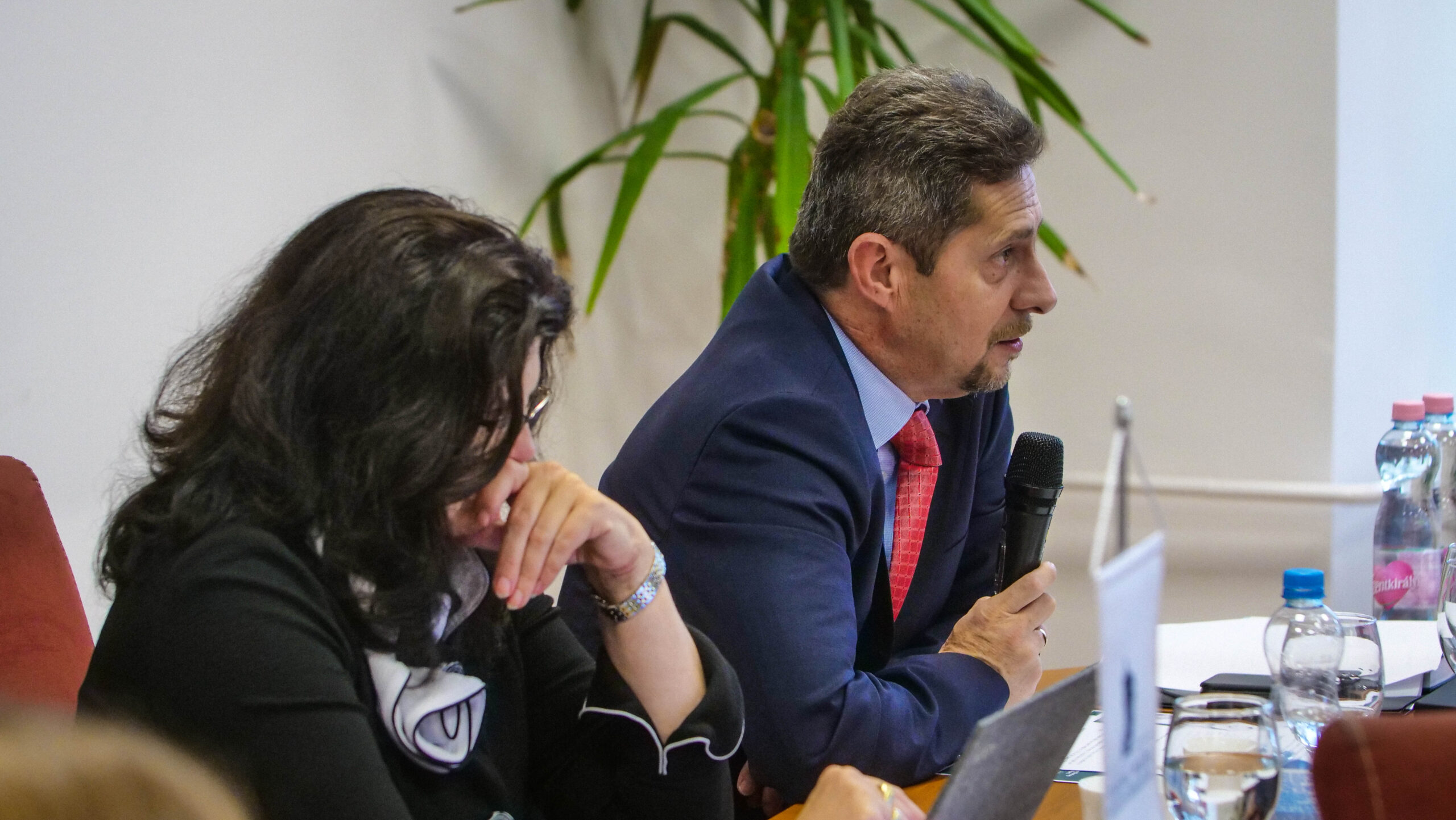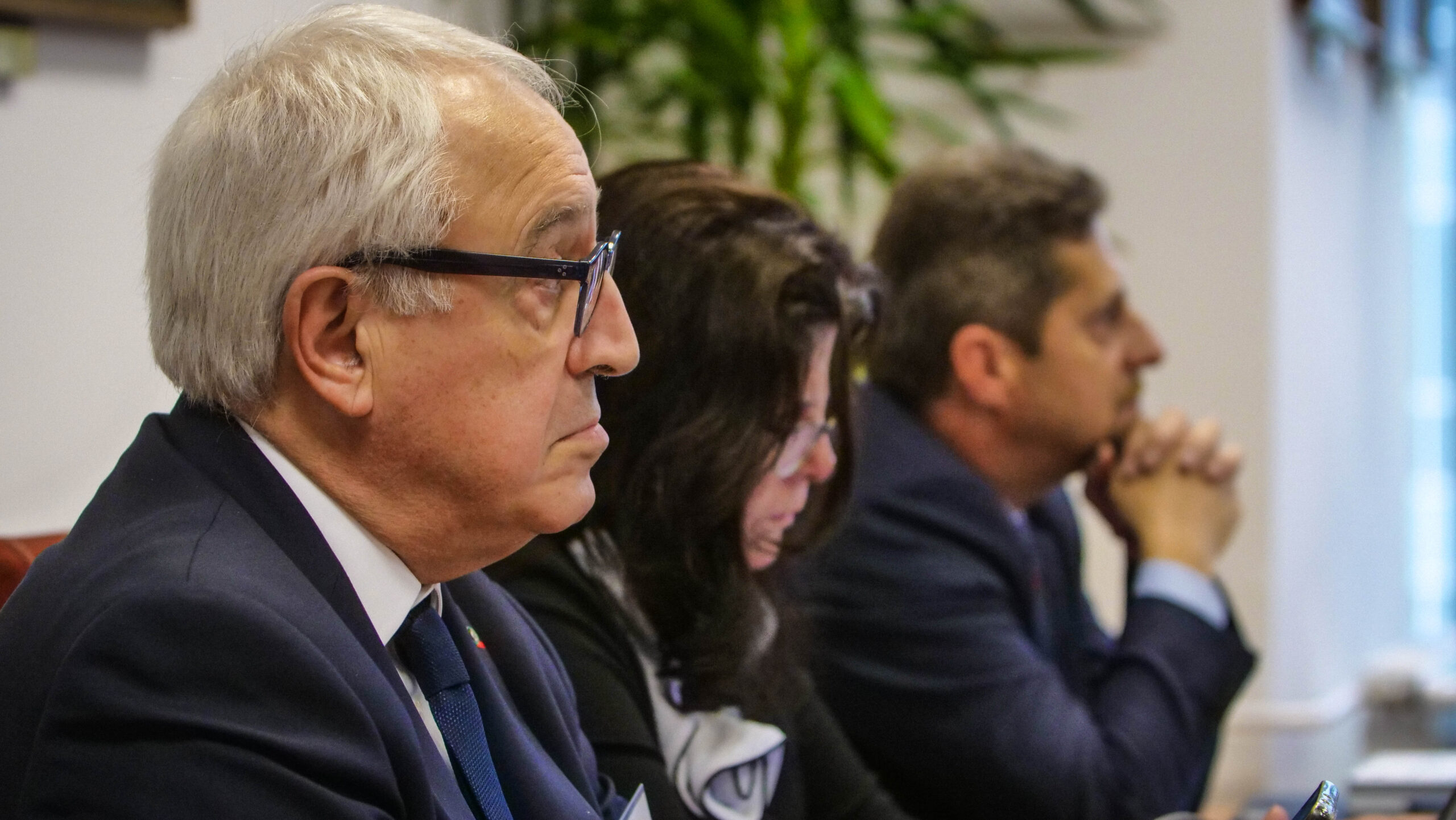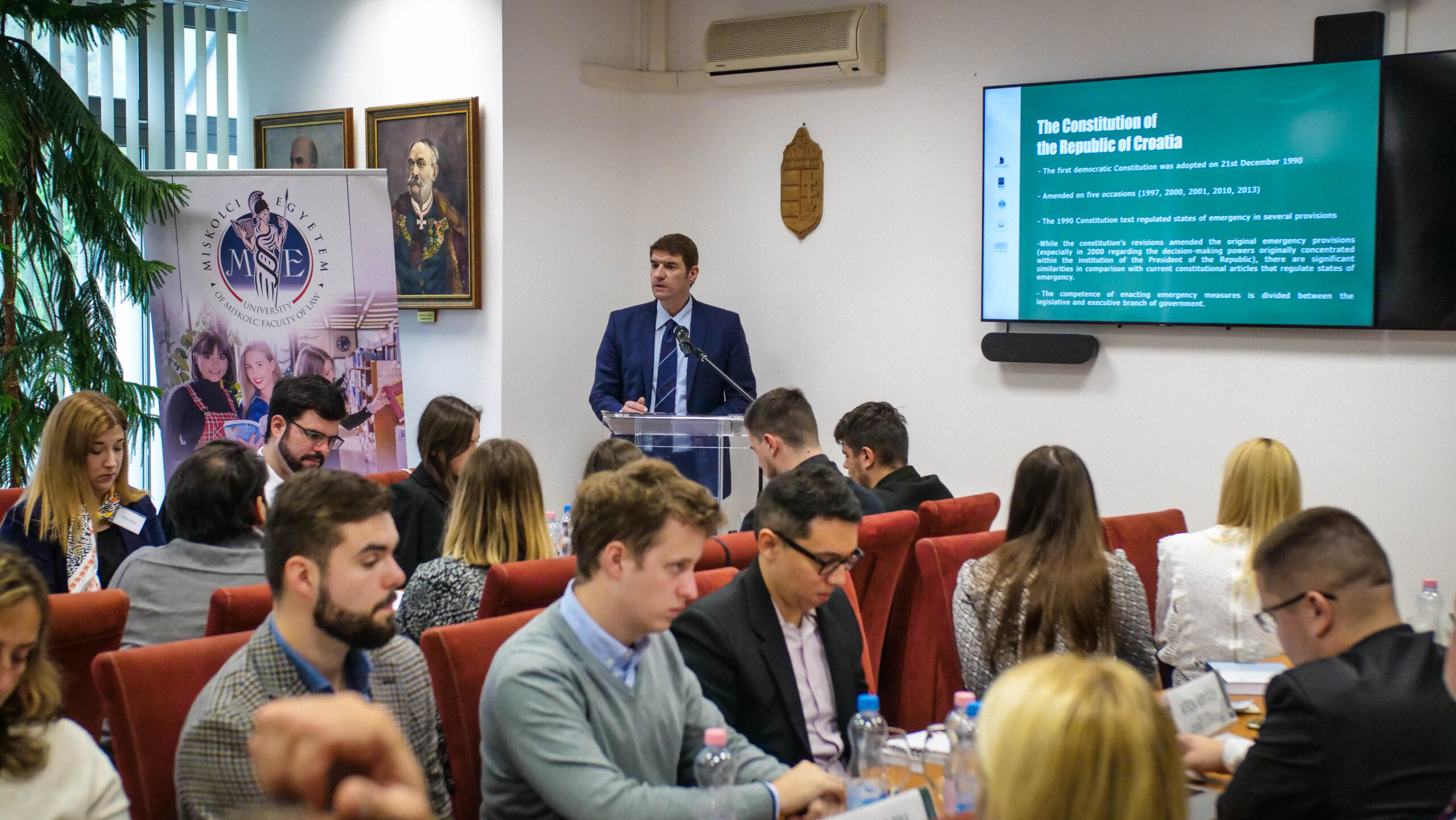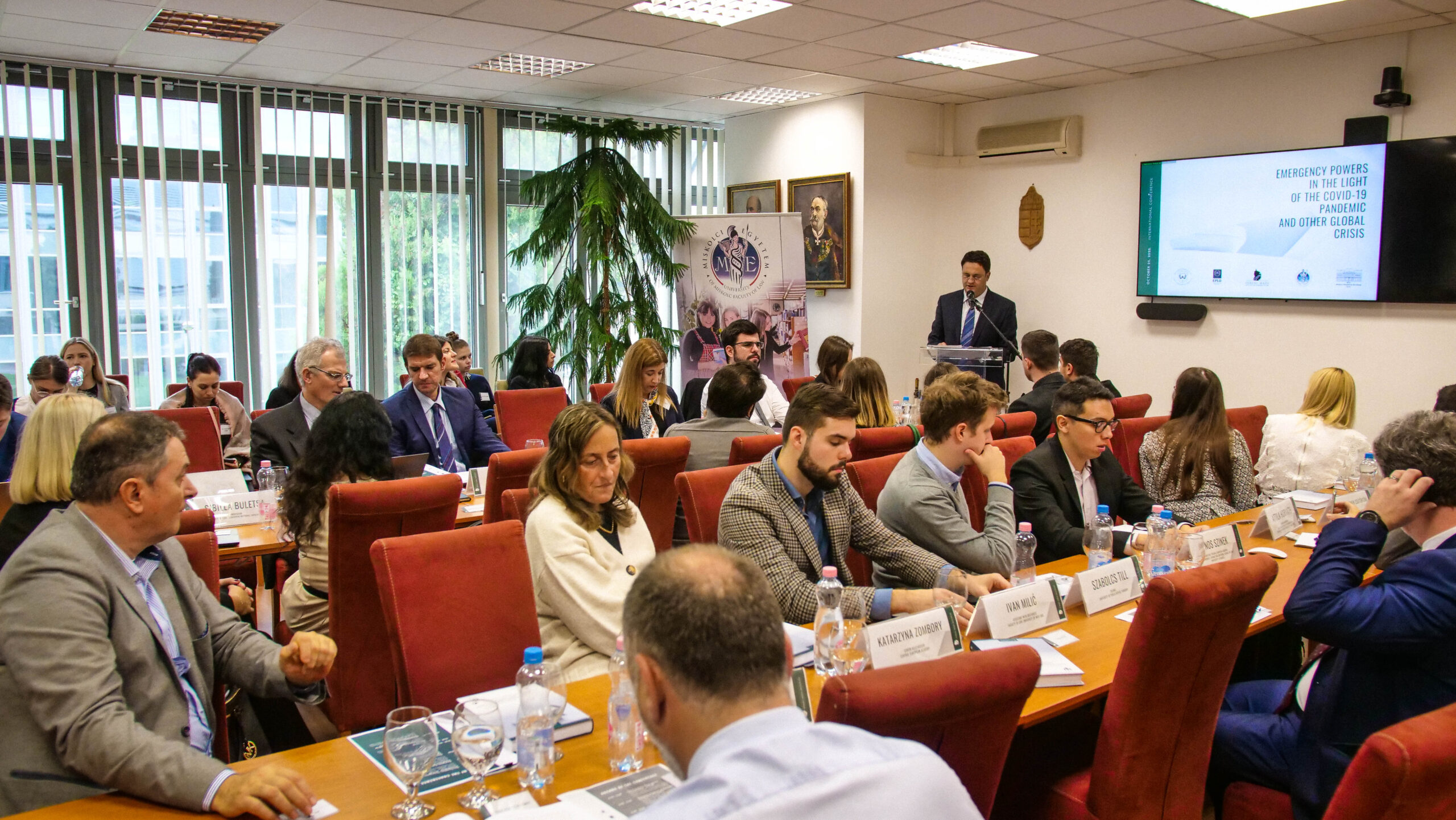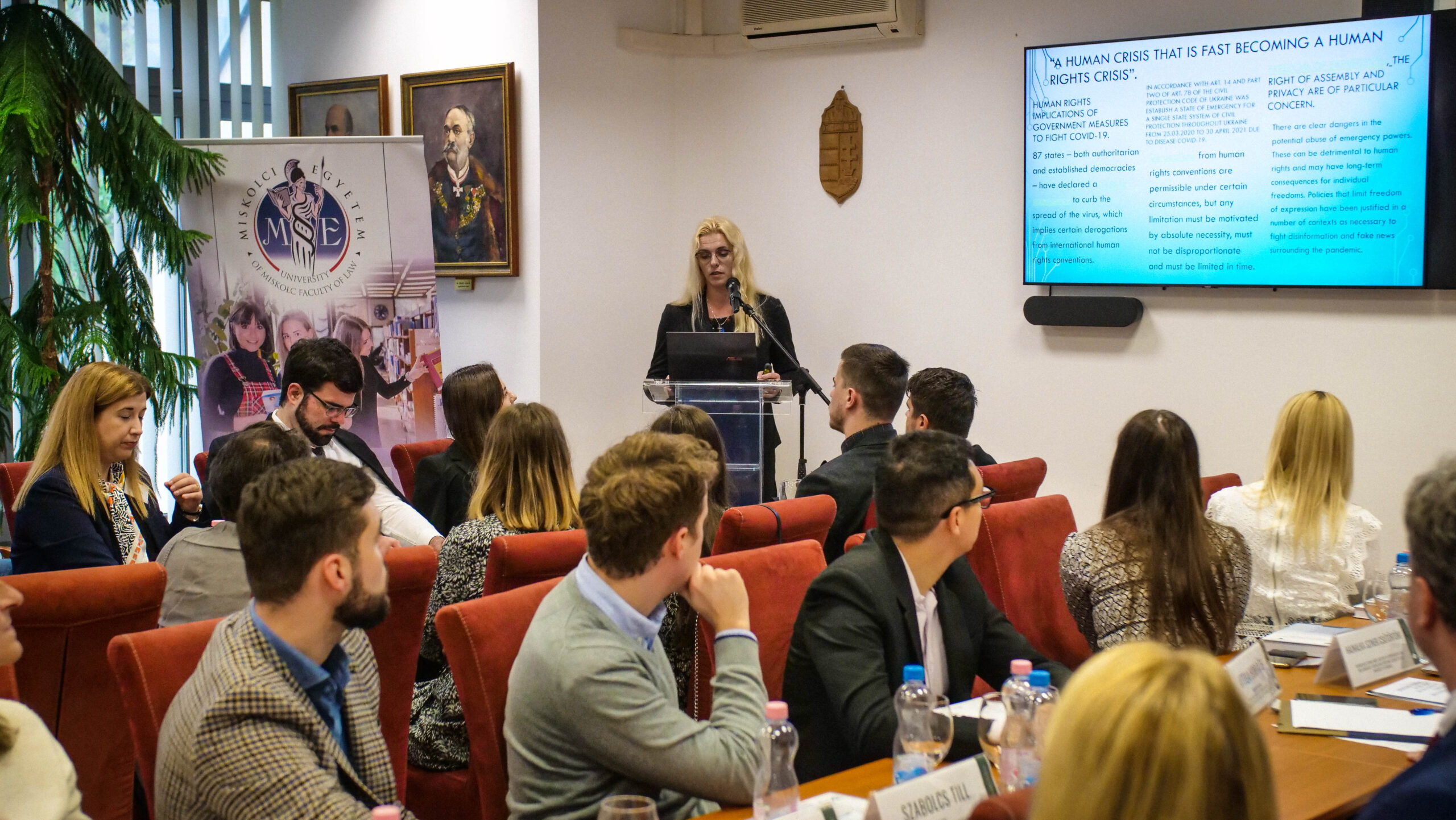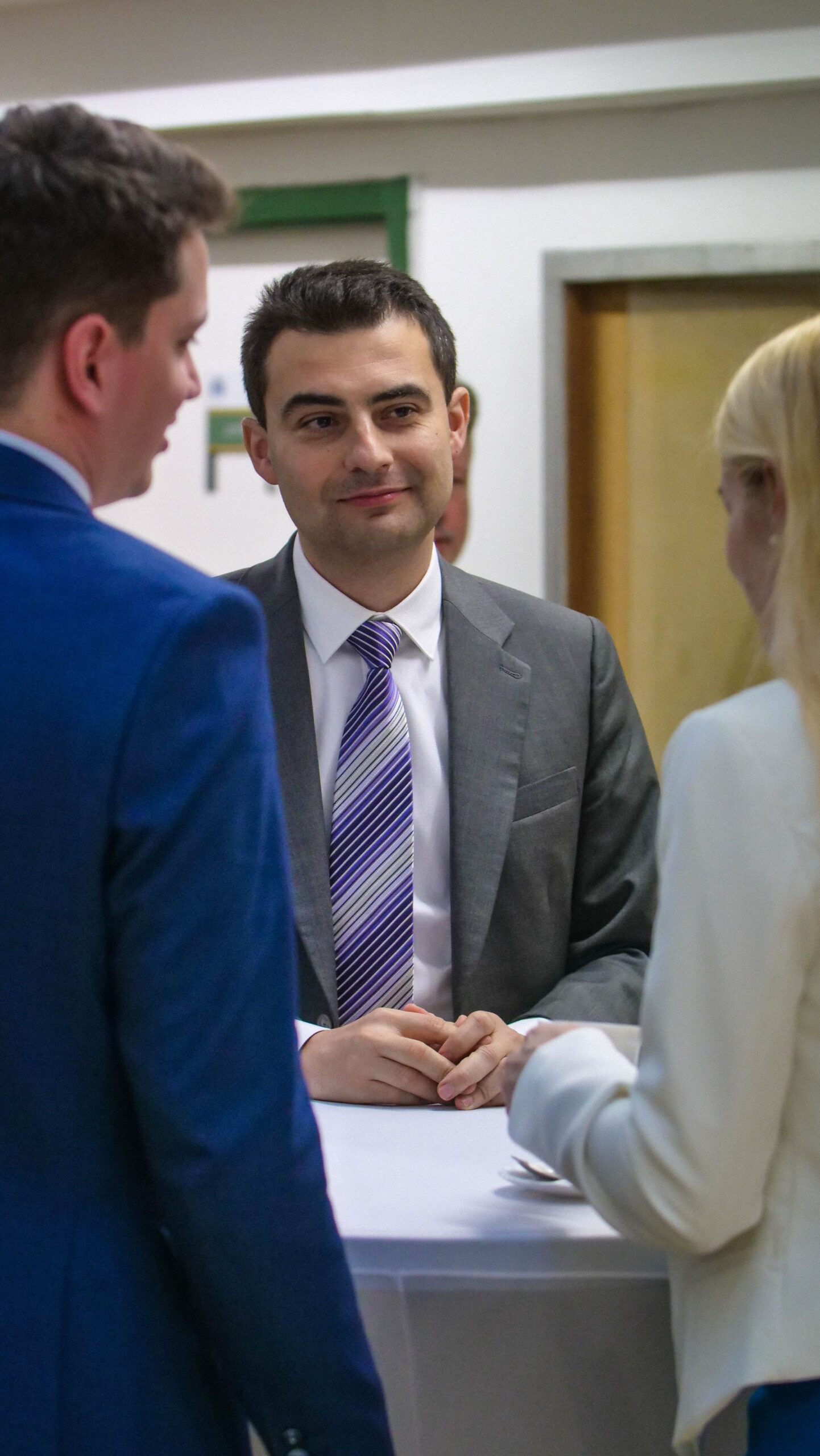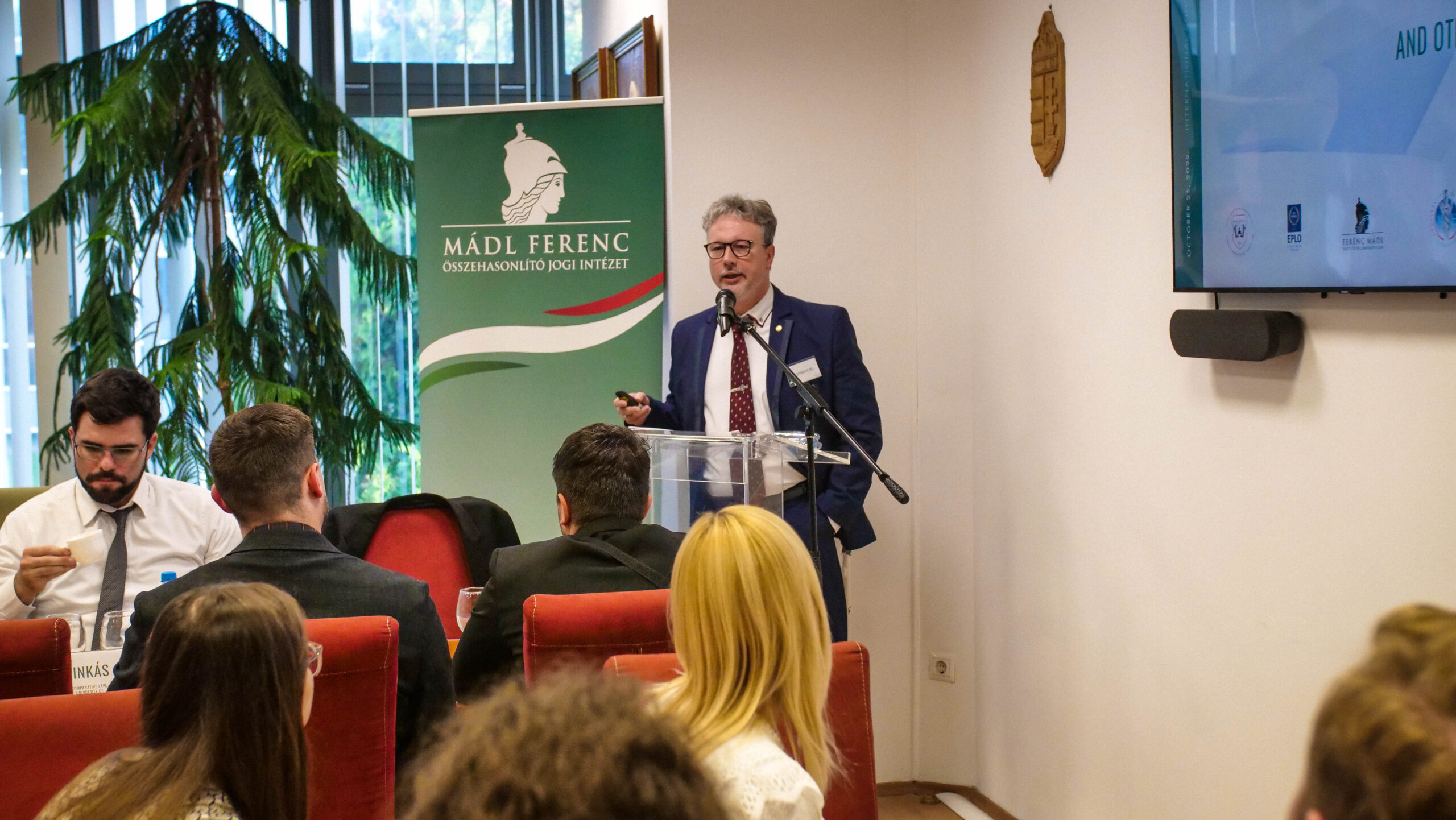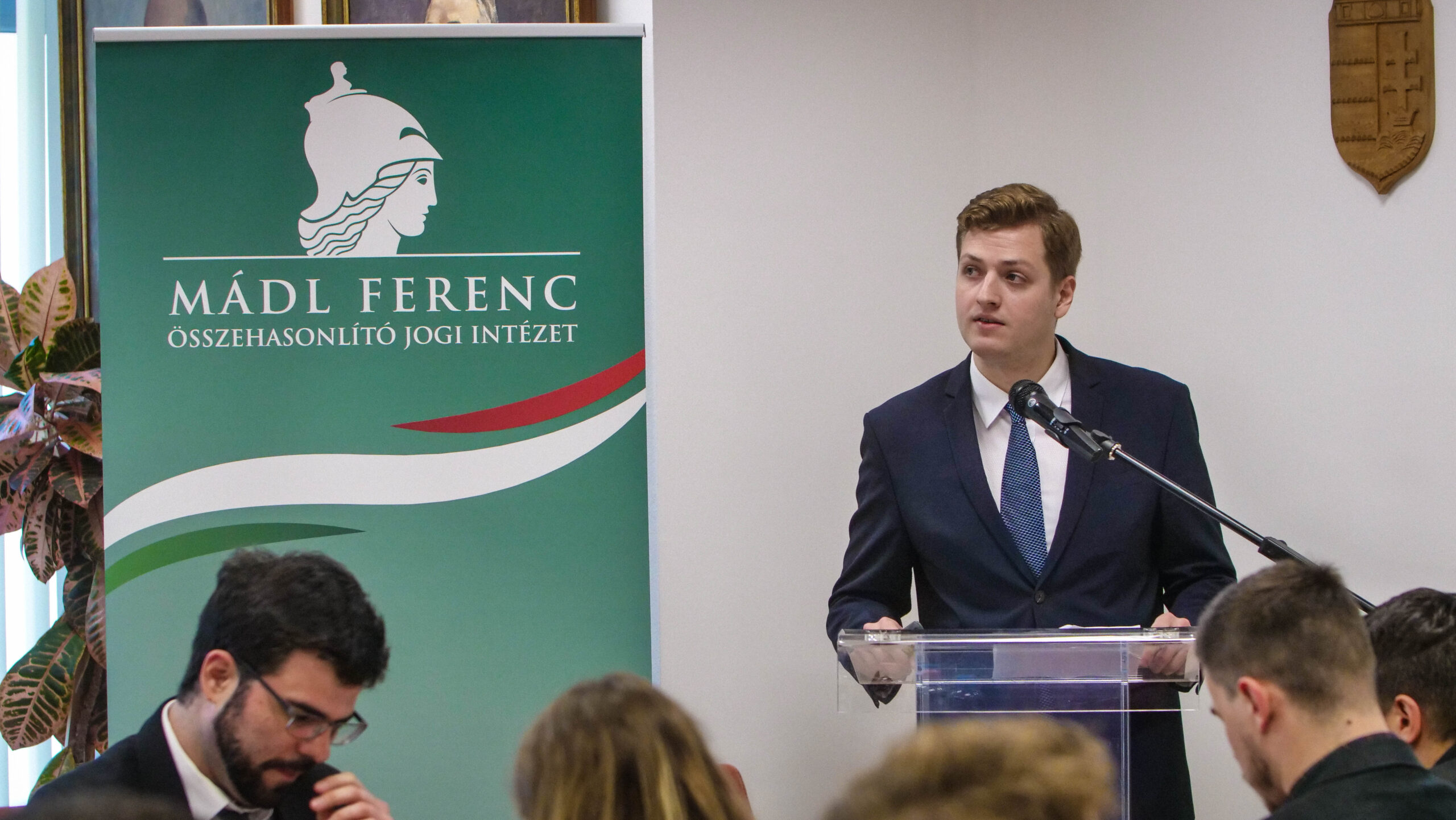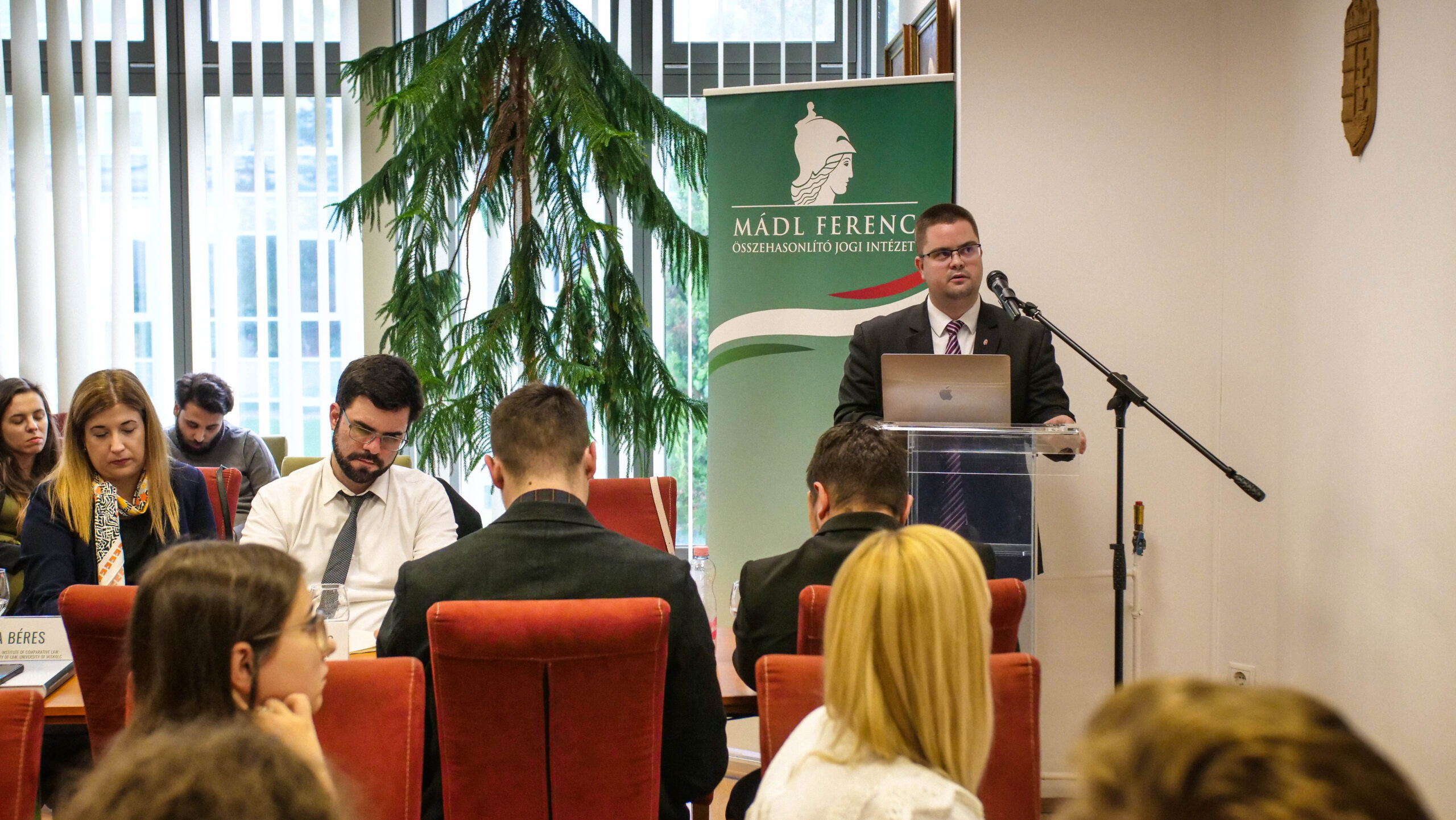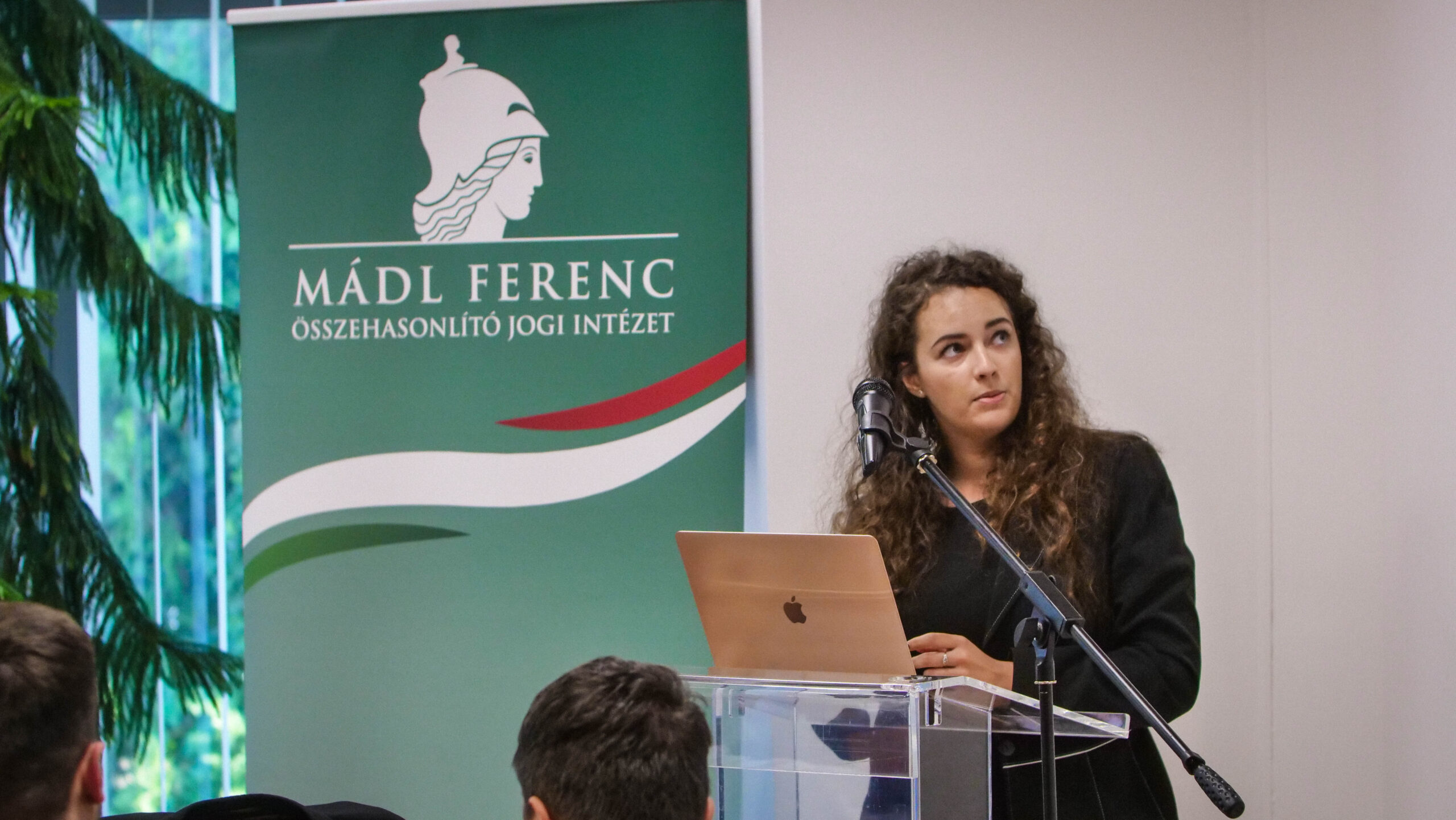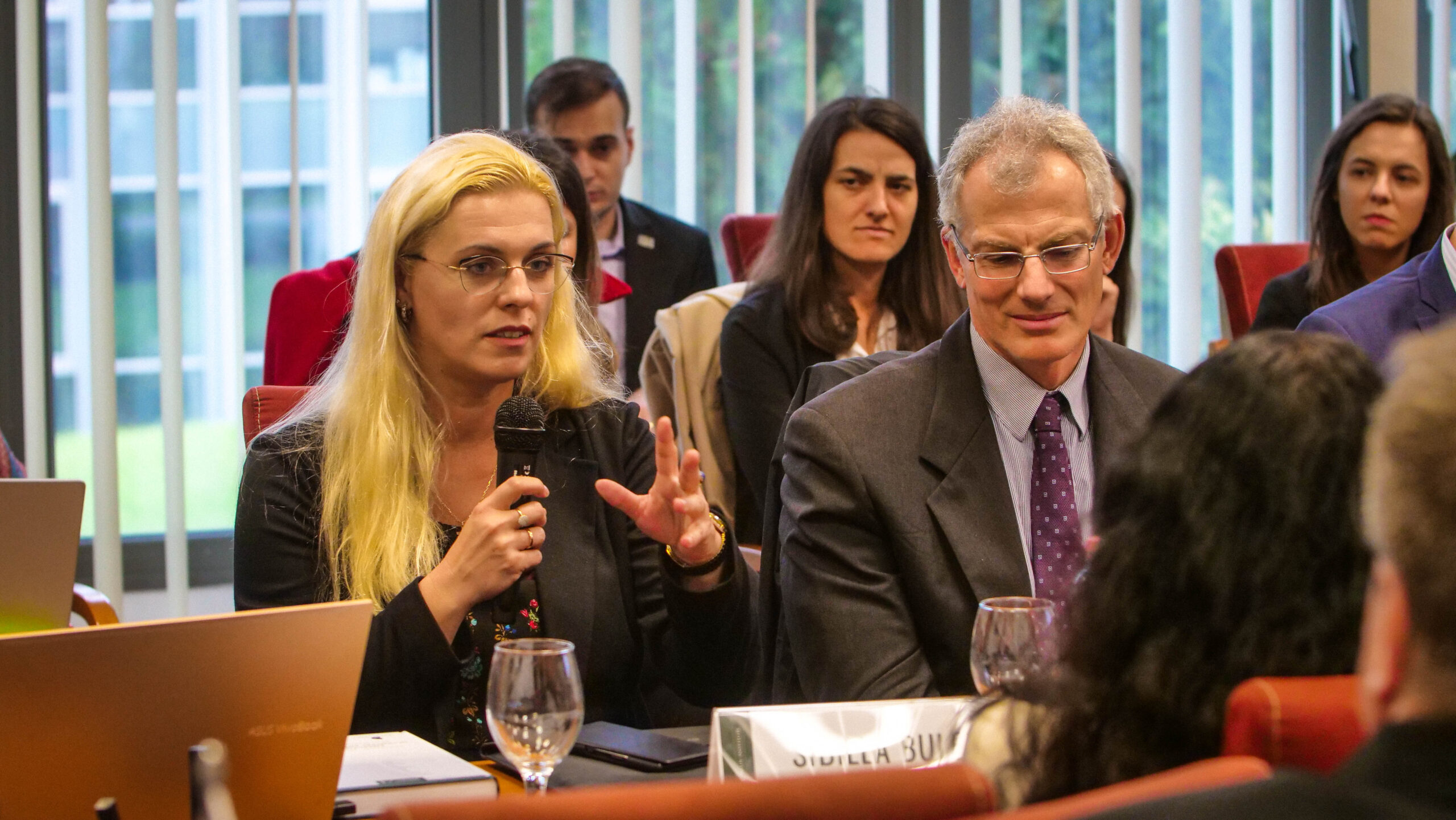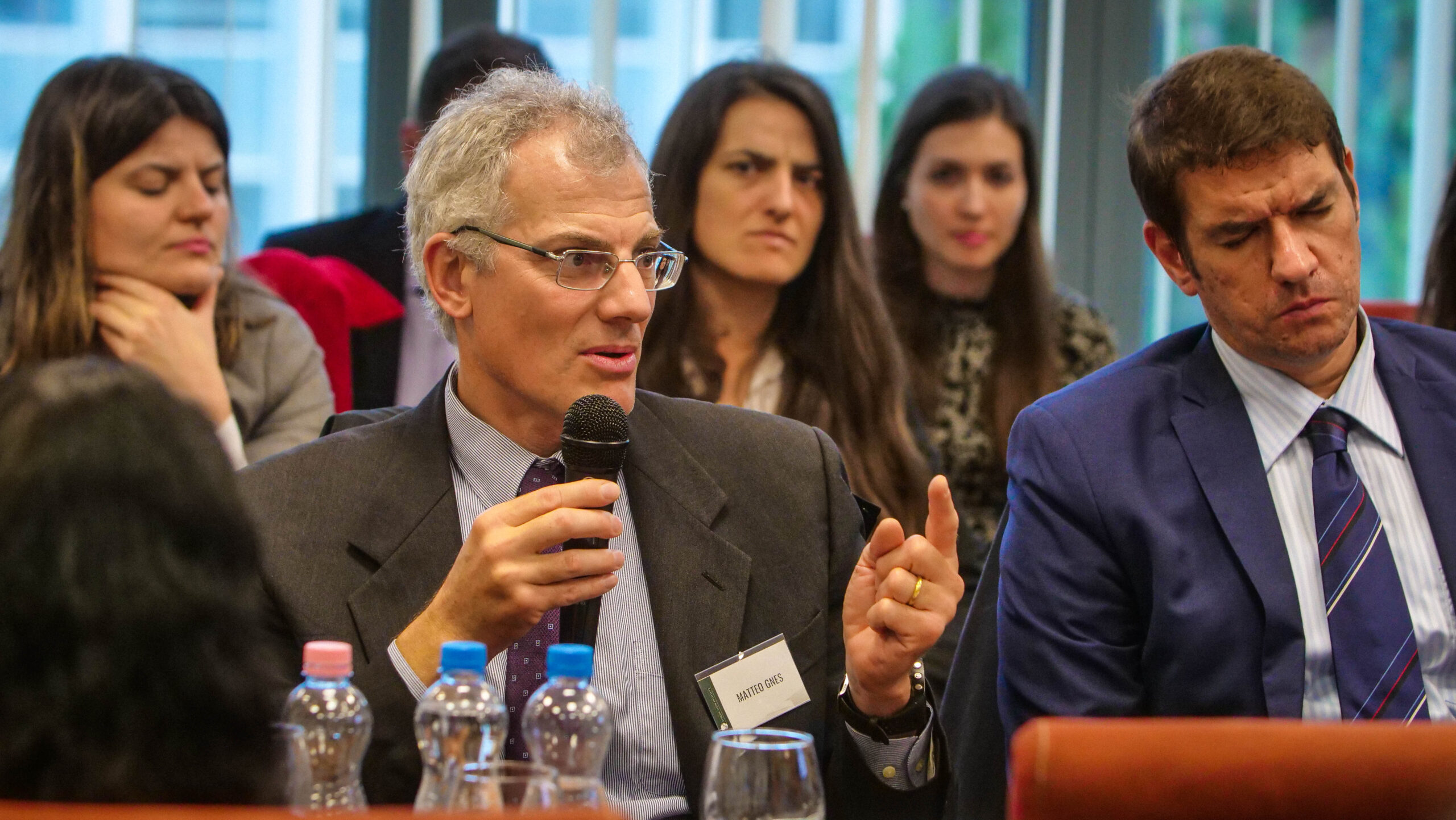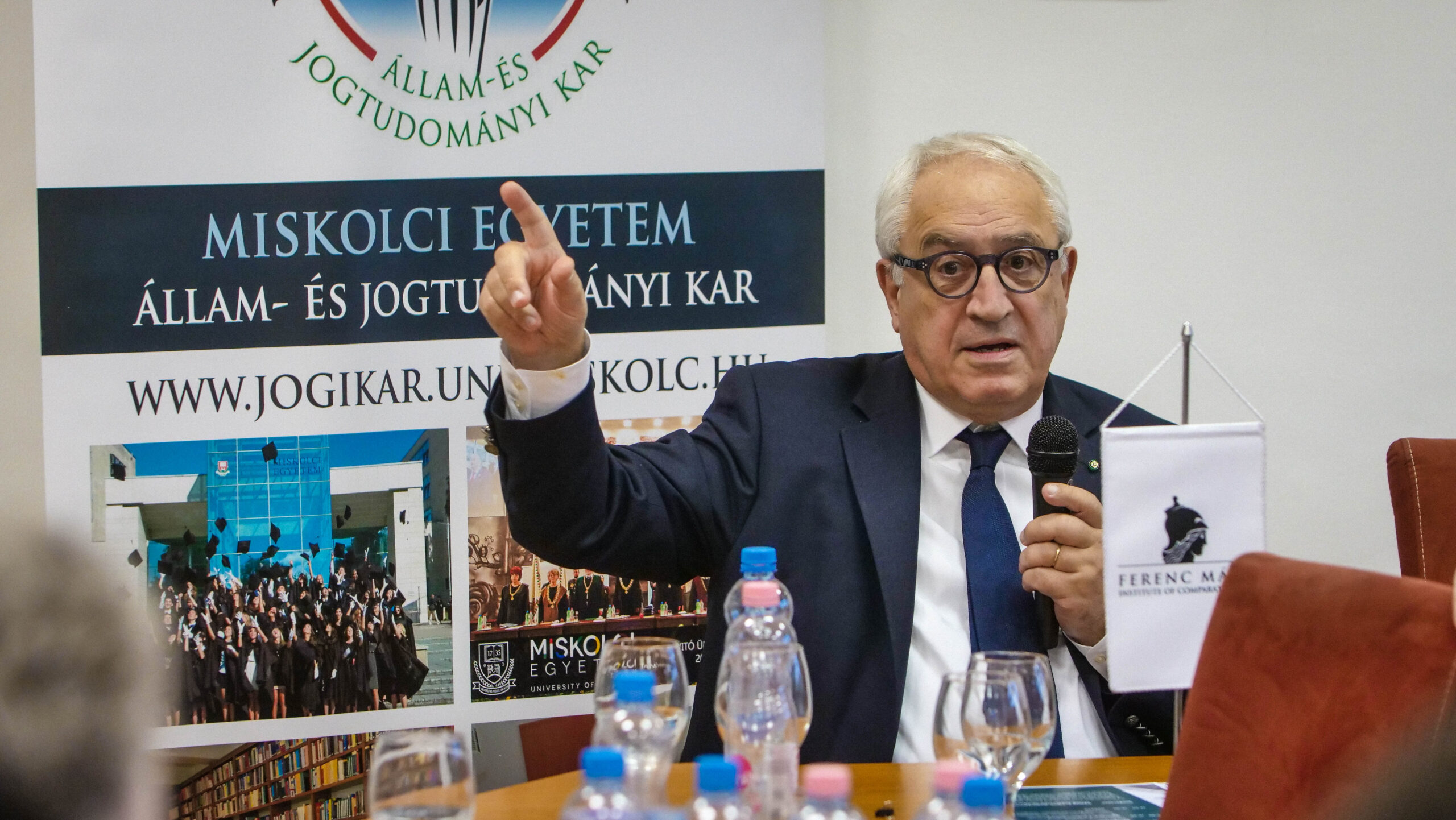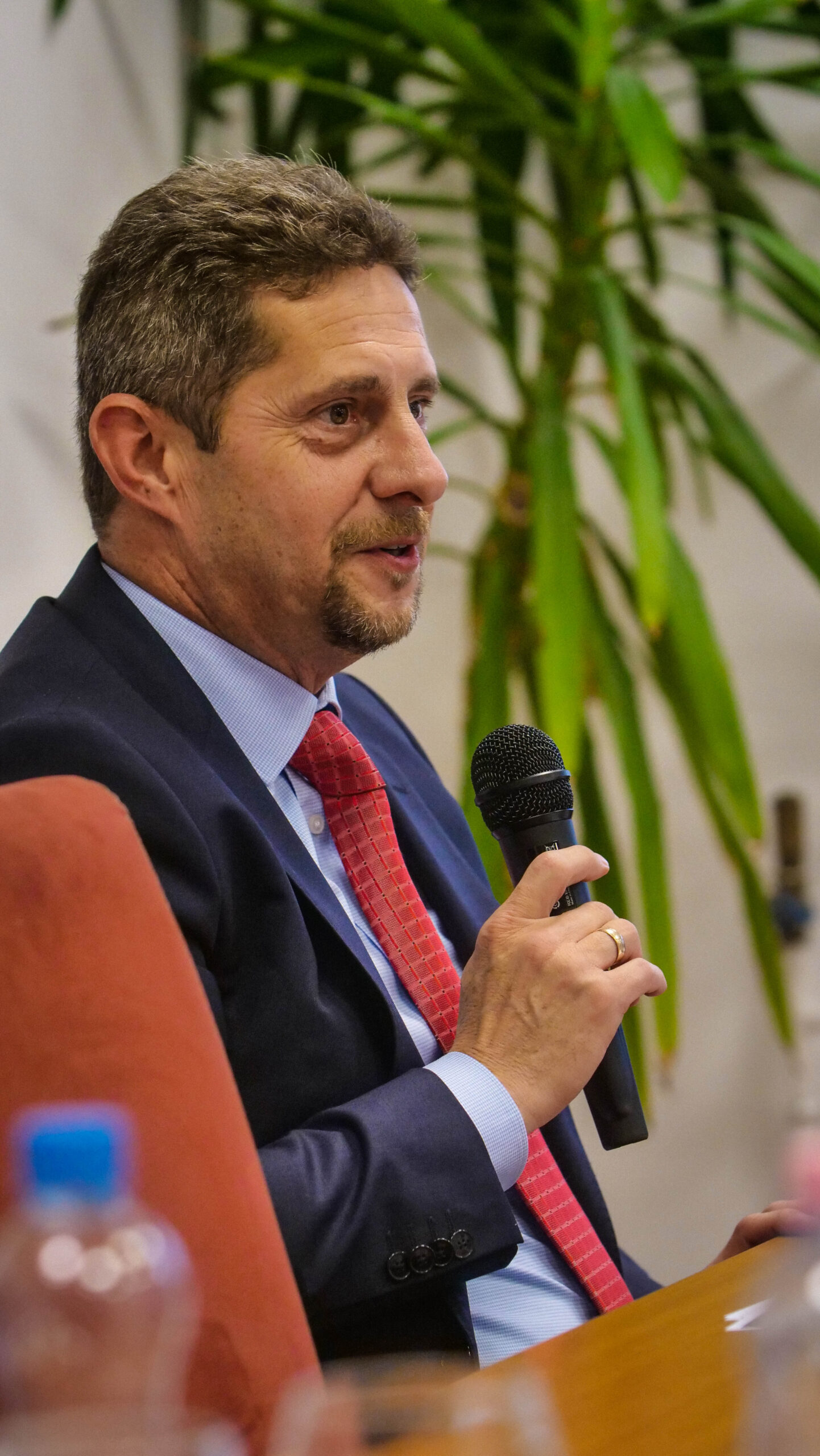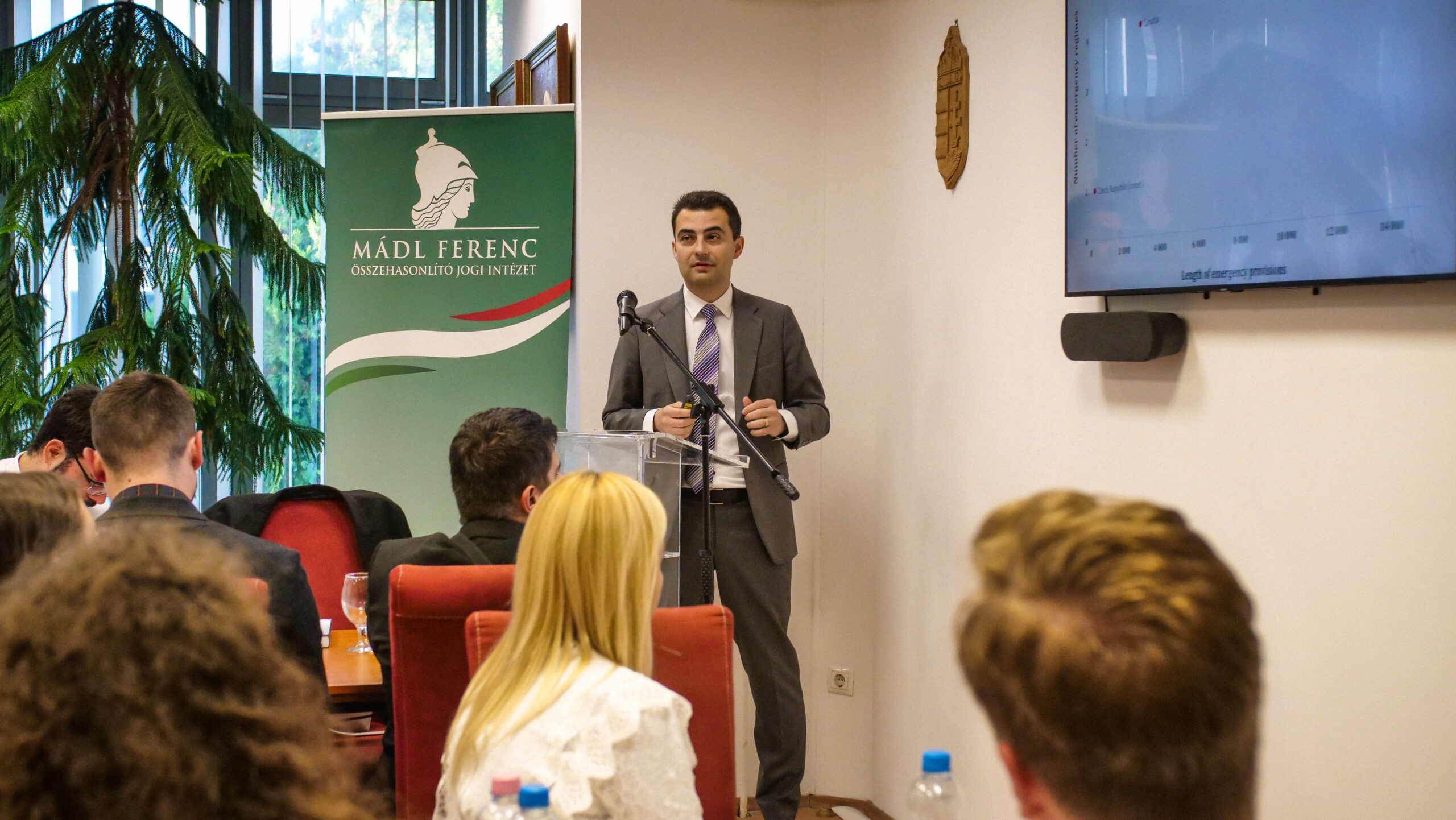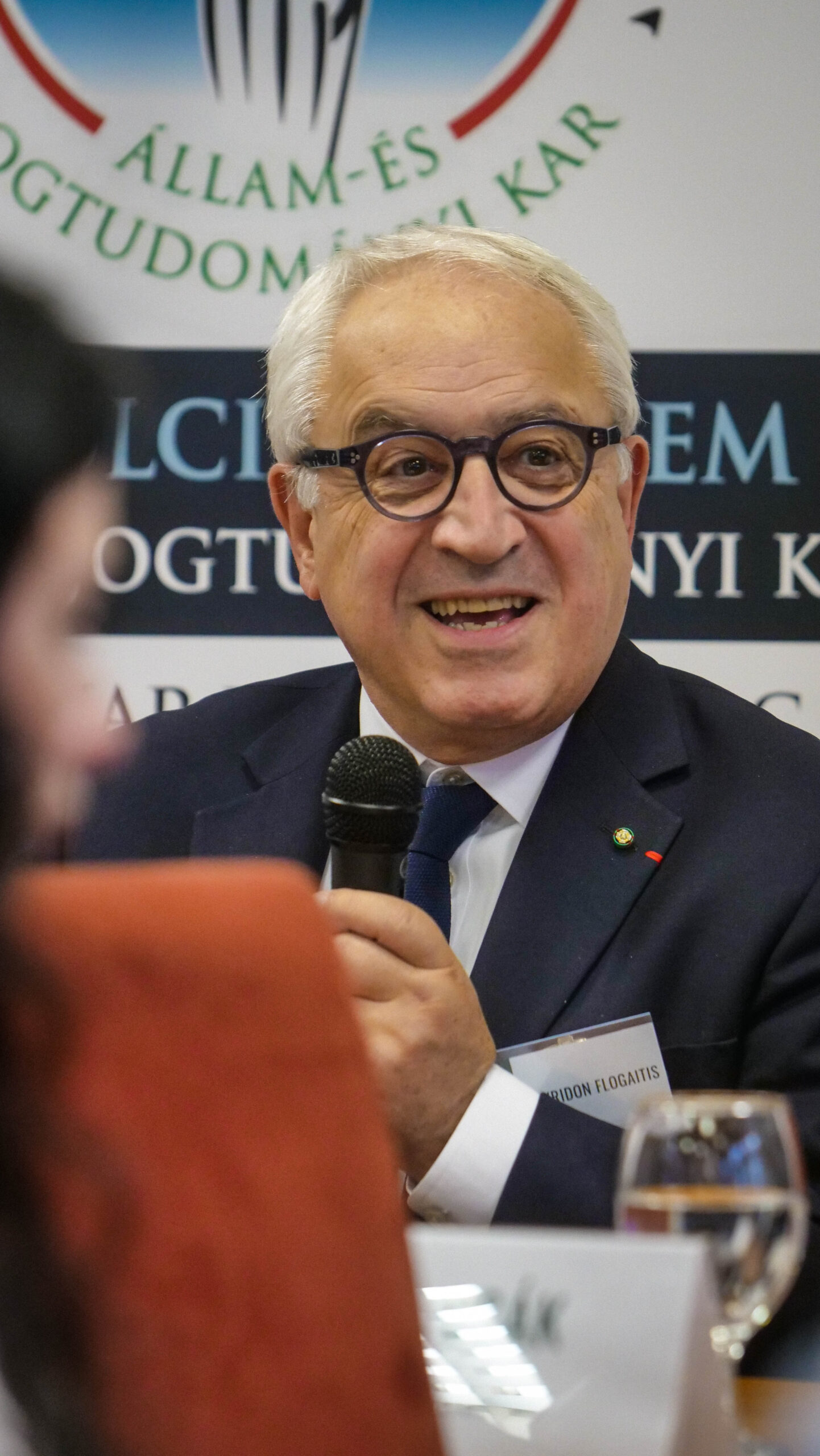The international conference titled Emergency Powers in the Light of the COVID-19 Pandemic and Other Global Crisis took place at University of Miskolc Faculty of Law on 25 October 2022. The scientific event was organized by the Ferenc Mádl Institute of Comparative Law (FMI), together with the European Public Law Organization (EPLO), the University of Miskolc Faculty of Law, the Central-European Association for Comparative Law, as well as the Hungarian Academy of Sciences’ Miskolc Regional Committee. The aim of the conference was twofold: On the one hand, the lecturers offered an in-depth analysis and comparison of the systems of emergency powers of Central and Eastern European countries, paying special attention to the states of exception declared in the previous decades; on the other hand, the presentations were devoted to discussing the constitutional law aspects of the responses for COVID-19 crisis, highlighting the relevant legal and political debates, dilemmas and viewpoints surrounding the pandemic. In addition the first volume titled Emergency Powers in Central and Eastern Europe: From Martial Law to COVID-19 (eds.: Zoltán Nagy and Attila Horváth) of the book series Studies of the Ferenc Mádl Institute was also presented in the framework of the conference.
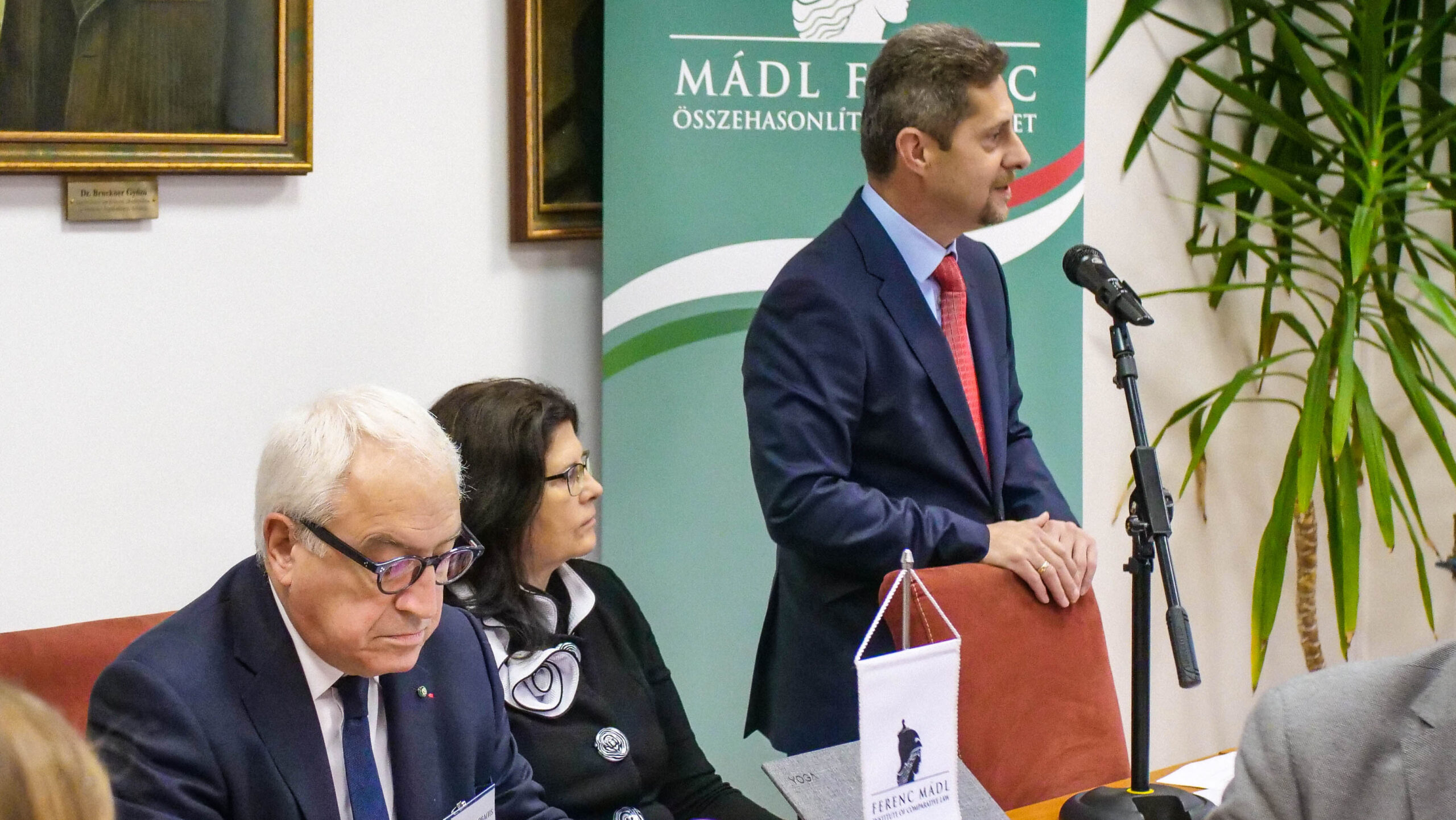
After the short opening speech of Gábor F. Tóth, Deputy Head of FMI and the moderator of the conference, the participants were welcomed by Csilla Csák, dean of the University of Miskolc Faculty of Law and Spyridon Flogaitis, director of the EPLO.
The first two lectures of the conference focused on the aspects of international law and EU law of emergency power. Nóra Béres’ (researcher, FMI; assistant lecturer, University of Miskolc) presentation dealed with the topic of derogation from human rights in time of public emergency according to the Article 15 of European Convention on Human Rights and provided an overview of the applications reaching the European Court of Human Rights related to the COVID-19 health crisis. György Marinkás (researcher, FMI; assistant professor, University of Miskolc) focused on the competences of the EU institutions in the times of coronavirus pandemic on the basis of Founding Treaties. In his presentation the researcher of FMI came to the conclusion, that if the institutions and bodies of the EU approached the issues caused by the pandemic from the perspective of the Single Market and viewed the competencies of the EU as a ‘web of competence’, they could help the Member States provide the necessary medical equipment and protect their economies from collapse.
The first presentation that summarized national legislation on emergency power and exceptional situation was Matteo Gnes’ (professor, University of Urbino Carlo Bo; EPLO) lecture about the Italian restrictive measures due to the coronavirus pandemic and the relating public debates. All the following lectures provided detailed overview of the constitutional framework and regulation of emergency power and special legal order of the countries concerned with particular regard to the responses to the health crises caused by the coronavirus pandemic. Thus Slobodan Orlovic (professor, University of Novi Sad Faculty of Law) presented the Serbian legislation, Katarzyna Zombory (senior researcher, Central European Academy) summarized the Polish legislation, János Szinek (director, Central European Academy) held lecture about the Slovak legislation, and Dávid Hojnyák (researcher, FMI; assistant lecturer, University of Miskolc) provided an overview of the Czech legislation together with Hajnalka Szinek Csütörtöki (researcher, FMI). With regard to the croatian regulation two different lectures were held. Petar Bacic (professor, University of Split Faculty of Law) talked about the emergency rules stipulated by the croatian constitution, and Marko Ivkosic (associate professor, University of Split Faculty of Law) provided a summary of the economic aspects of the COVID-19 pandemic in Croatia. . In her presentation about the Ukranian regulation Sibilla Buletsa (professor, Uzhhorod National University) paid particular attention to the subject of the limitation of human rights and the application of artificial intelligence in the fight against Covid-19. Szabolcs Till (colonel, University of Public Service) presented the Hungarian perspective of the special legal order with the enumeration of the key elements of the debates related to the topic.
As the last speaker, in his summarizing lecture Attila Horváth (senior researcher, FMI; assistant professor, University of Public Service) provided a comparative picture of the states examined with regard to the emergency regimes in the constitutions, the nature of the emergency regimes, the powers and competencies during emergency situations as well as the practice of recent times.
During the debate session the participants of the conference had the opportunity to ask the lecturers, so thus the conference ended with a fruitful discussion on relevant subjects such as the legal basis of restrictions on human rights and the possible benefits of the coronavirus epidemic.
Agenda of the conference:
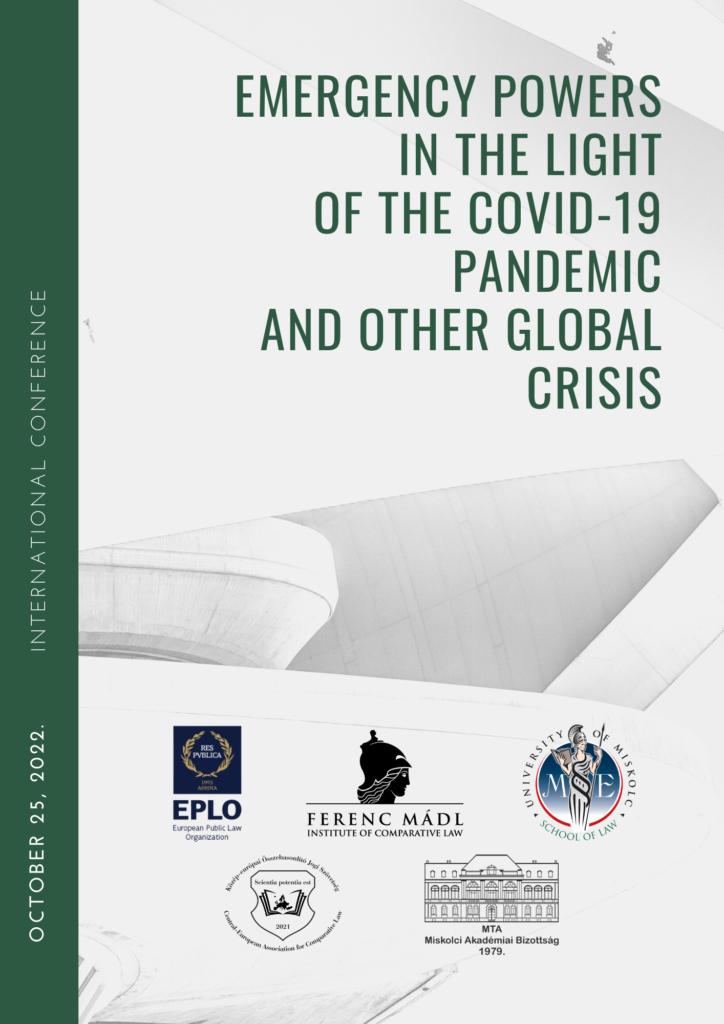


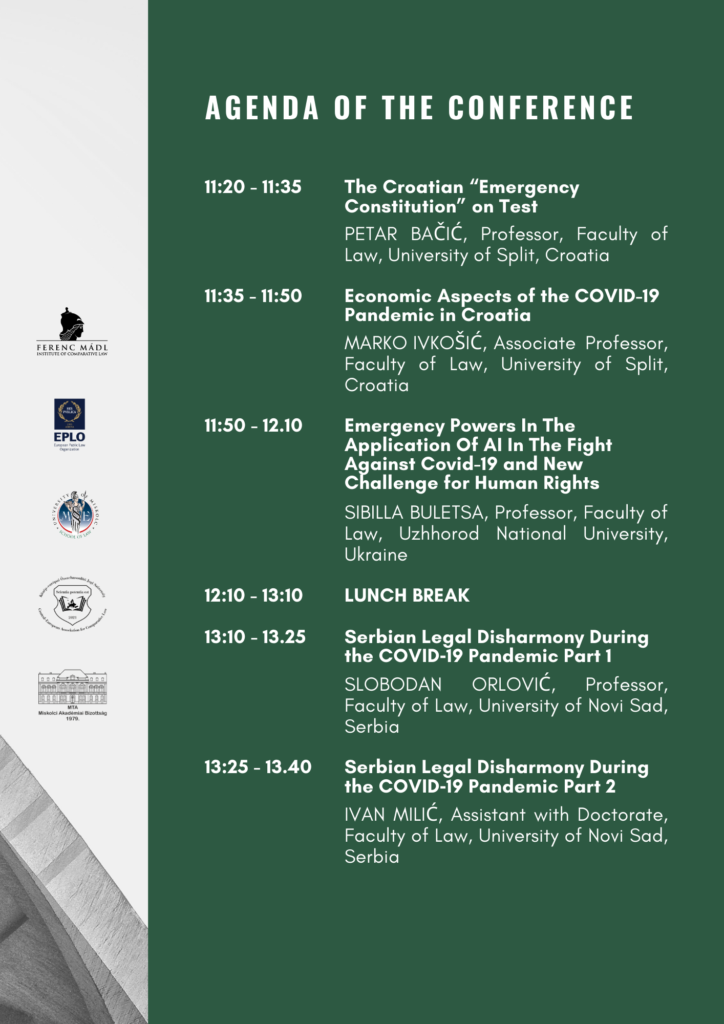

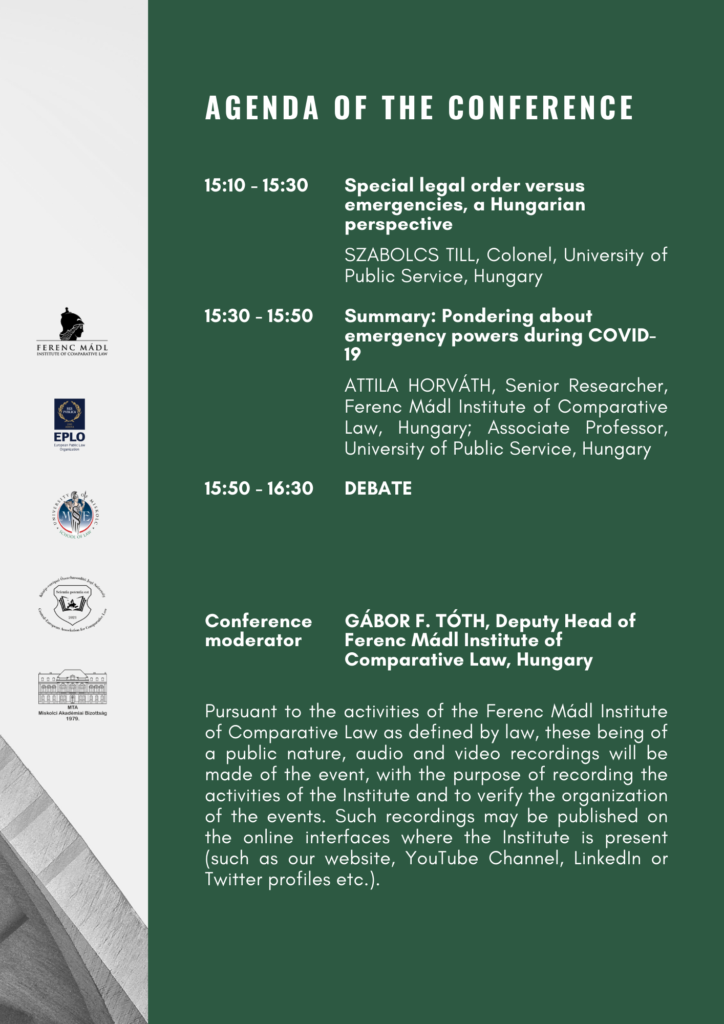
Video of the conference:
Other elements of the playlist:
Video: Nextage Production Kft.
Photos of the conference:
